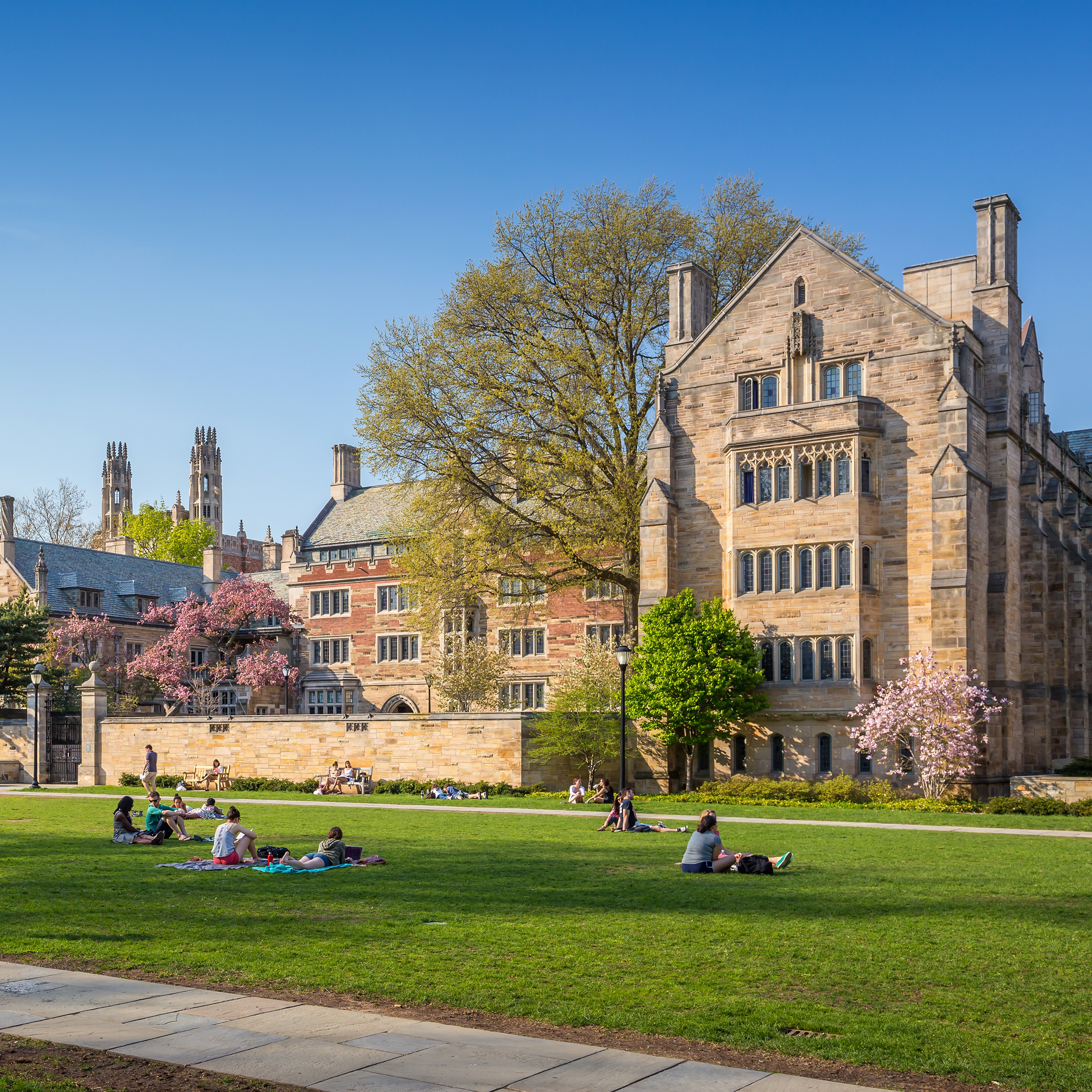
Most Americans agree that there is value to higher education and that having more individuals with a college degree is good for society. What worries people, and what prevents many from pursuing a college education, is the cost.
The average cost of four-year college tuition in the United States has more than doubled over the past 20 years.
Because of the complex web of institutional funding programs, including student aid, grants, work-study, and loans, however, the cost of attending college — as presented to the public — is rarely equal to what students actually pay. And the cost of college tuition after tuition discounts, still varies considerably by type of institution, family financial status, academic performance in the first year of college, and a range of other factors, including the geographic location of the institution.
Using the most recent government statistics, 24/7 Wall St. reviewed first-year net tuition prices for thousands of four-year higher education institutions to identify the most expensive college in each state. Nationwide, California Institute of the Arts has the most expensive net price, at over $50,000. California is also home to the nation’s least expensive college tracked by federal statistics, Zaytuna College. Zaytuna first-year students pay on average just $1,135 after institutional funding is subtracted.
In an interview with 24/7 Wall St., Richard Reeves, branch chief for the postsecondary branch of National Center for Education Statistics, helped unpack the complex of factors involved in the price of going to college in the United States. Reeves noted four arguments that can explain rising costs, as well as how prices can vary within states: State school funding policies, the level of tuition discounting, the size of student fees, and how many students are applying each year all drive costs.
Click here to see the most expensive colleges in every state.
Click here to see our detailed findings and methodology.
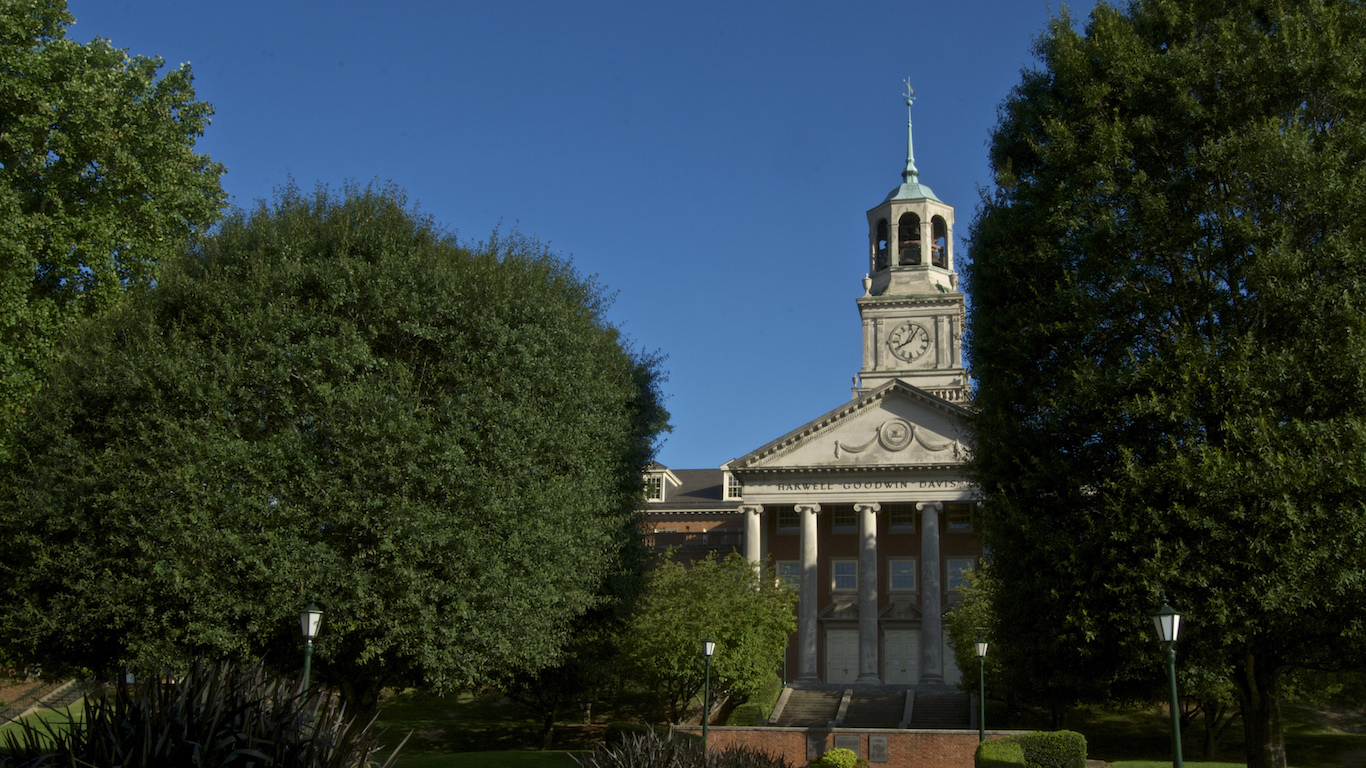
1. Alabama
> Most expensive college: Samford University
> Annual net price: $29,544
> Statewide 4-yr public university tuition: $9,149
> Samford University admission rate: 91.4%
> Total state student aid spending per student: $20.27 (2nd lowest)
[in-text-ad]

2. Alaska
> Most expensive college: Alaska Pacific University
> Annual net price: $18,026
> Statewide 4-yr public university tuition: $6,880
> Alaska Pacific University admission rate: 55.1%
> Total state student aid spending per student: $670.37 (18th highest)
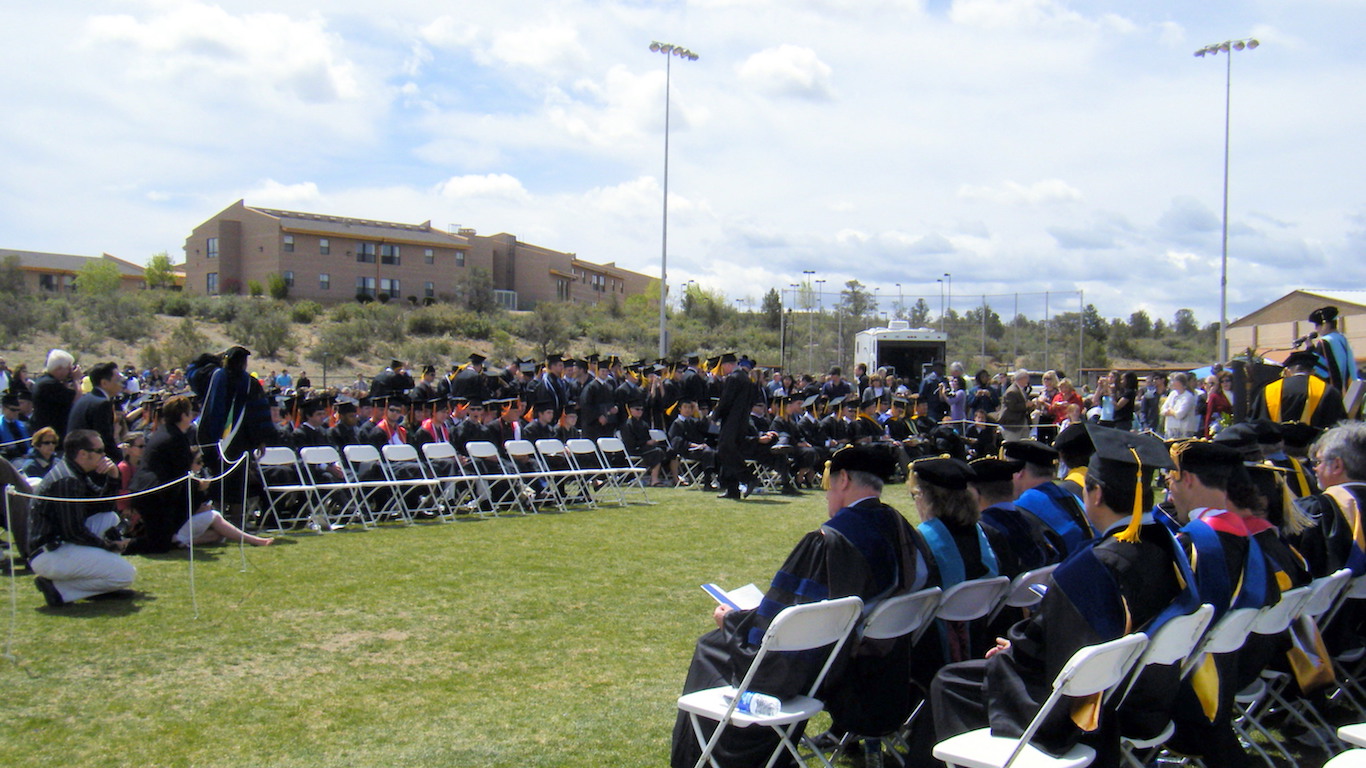
3. Arizona
> Most expensive college: Embry-Riddle Aeronautical University-Prescott
> Annual net price: $32,681
> Statewide 4-yr public university tuition: $9,901
> Embry-Riddle Aeronautical University-Prescott admission rate: 76.3%
> Total state student aid spending per student: $35.65 (3rd lowest)
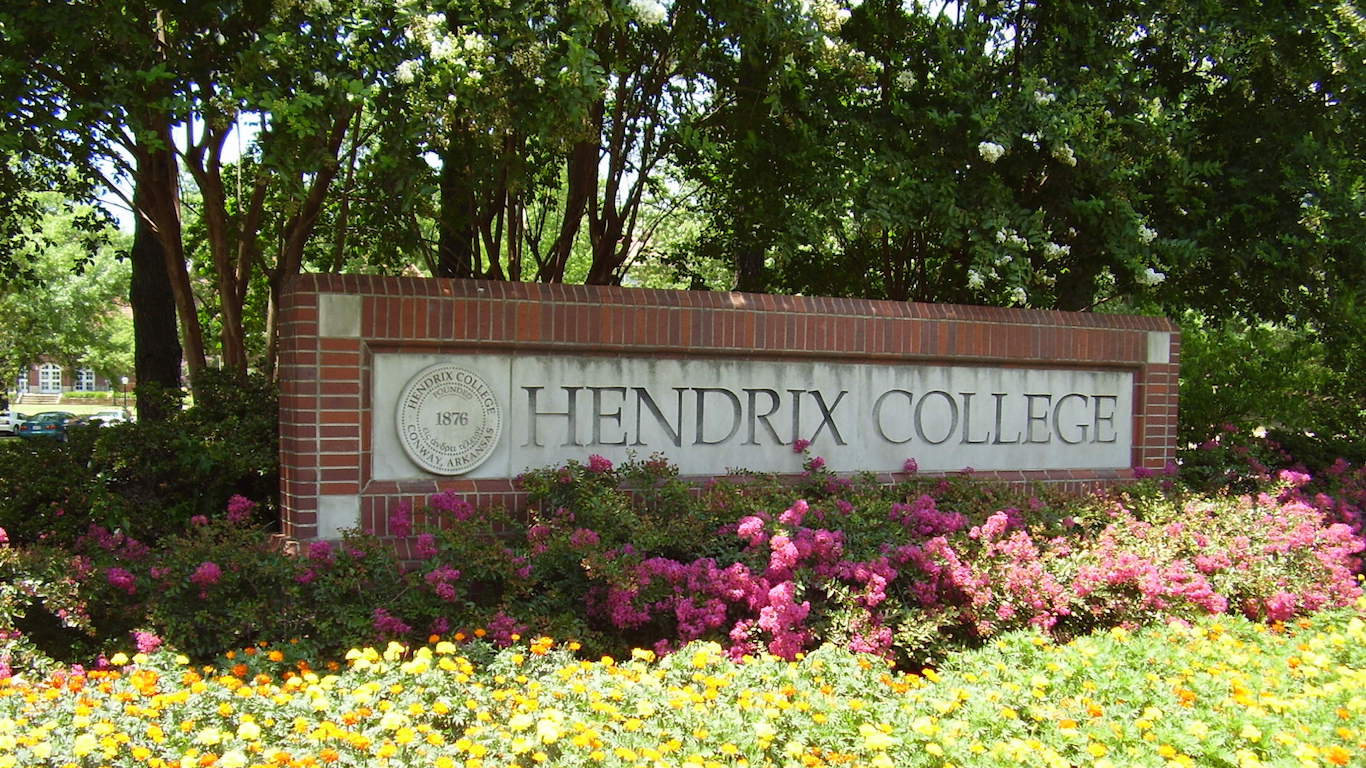
4. Arkansas
> Most expensive college: Hendrix College
> Annual net price: $22,777
> Statewide 4-yr public university tuition: $7,582
> Hendrix College admission rate: 77.1%
> Total state student aid spending per student: $771.38 (14th highest)
[in-text-ad-2]
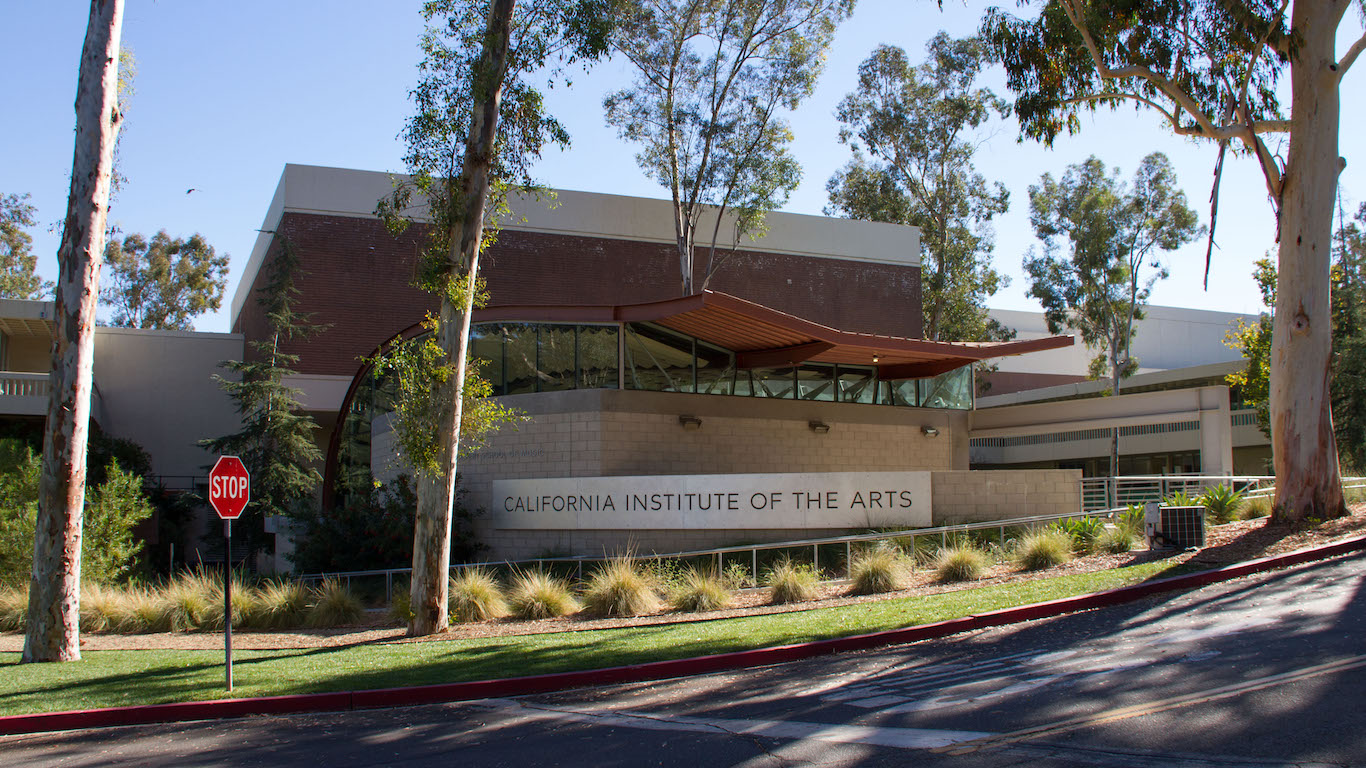
5. California
> Most expensive college: California Institute of the Arts
> Annual net price: $50,472
> Statewide 4-yr public university tuition: $9,245
> California Institute of the Arts admission rate: 23.6%
> Total state student aid spending per student: $695.67 (17th highest)
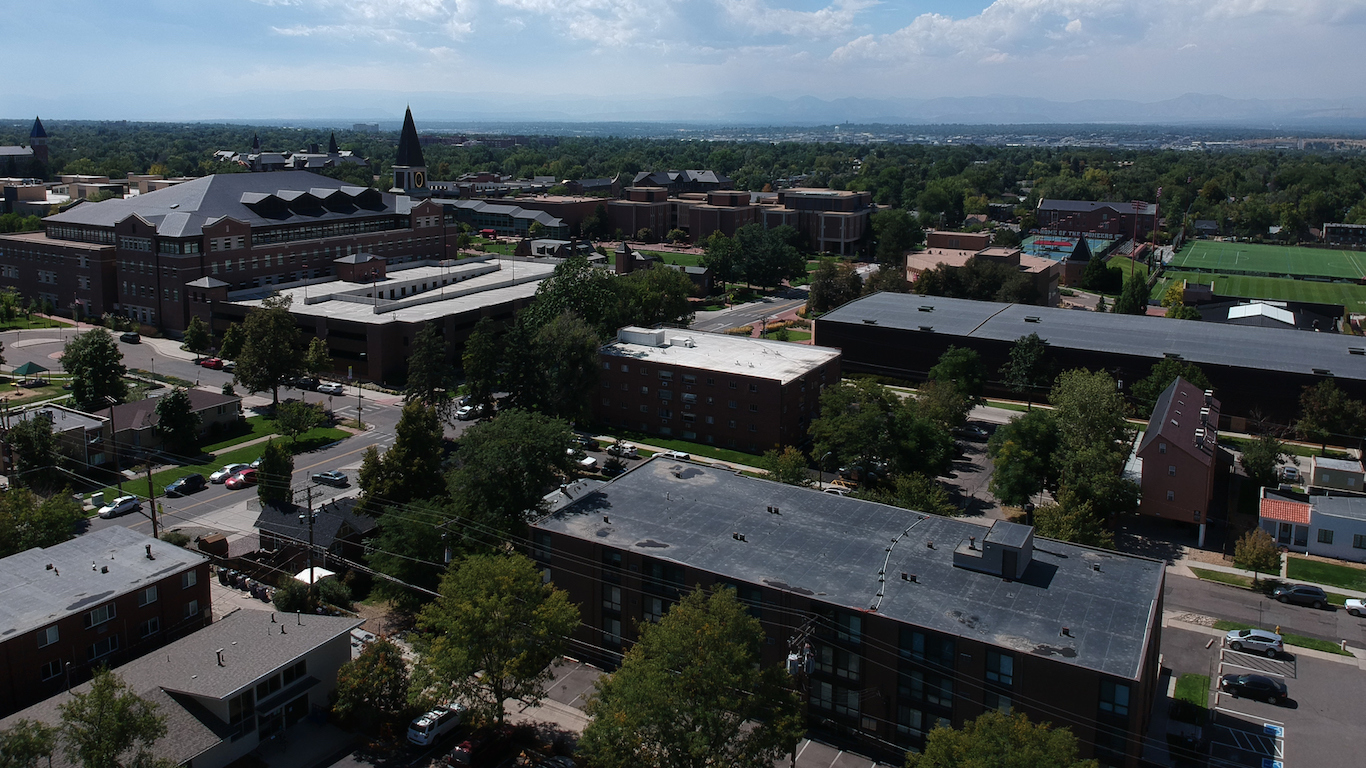
6. Colorado
> Most expensive college: University of Denver
> Annual net price: $32,940
> Statewide 4-yr public university tuition: $8,783
> University of Denver admission rate: 53.5%
> Total state student aid spending per student: $419.79 (22nd lowest)
[in-text-ad]
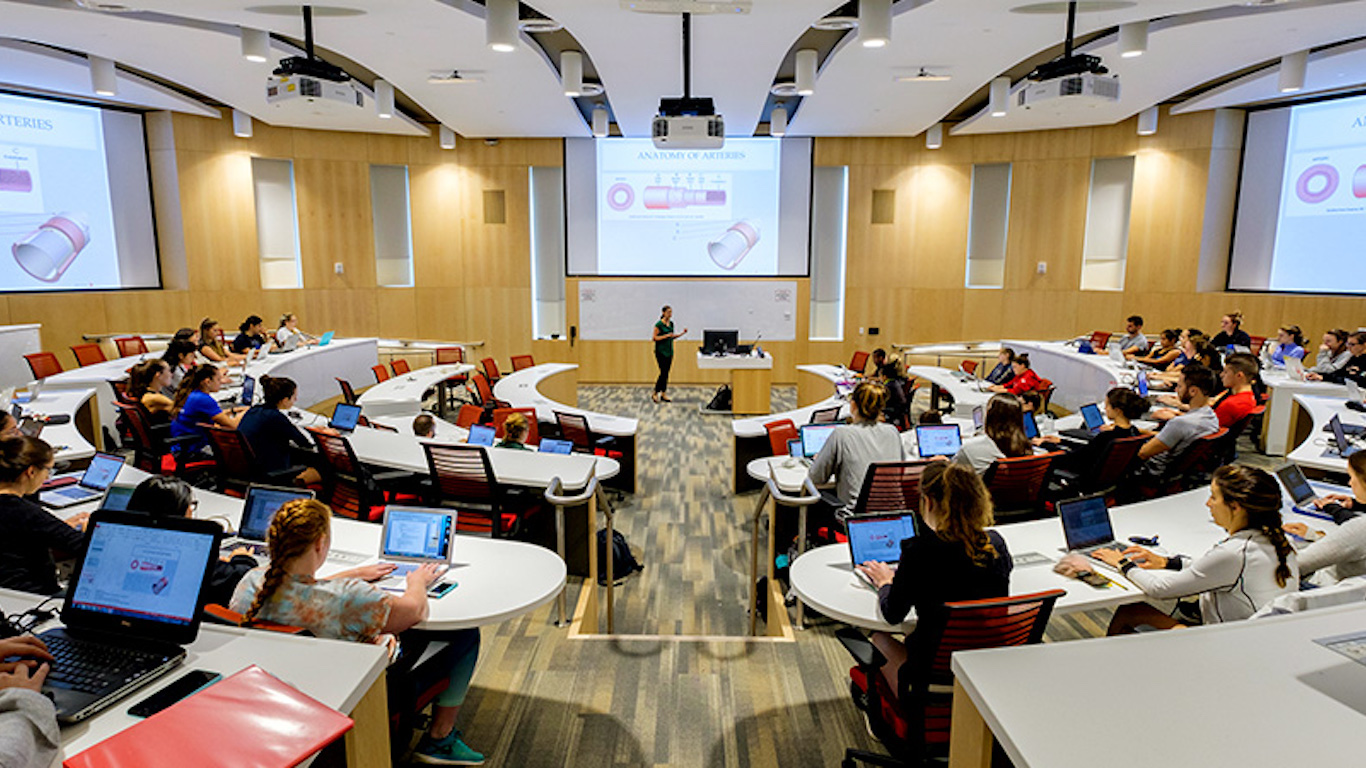
7. Connecticut
> Most expensive college: Sacred Heart University
> Annual net price: $39,134
> Statewide 4-yr public university tuition: $11,117
> Sacred Heart University admission rate: 57.2%
> Total state student aid spending per student: $732.86 (16th highest)
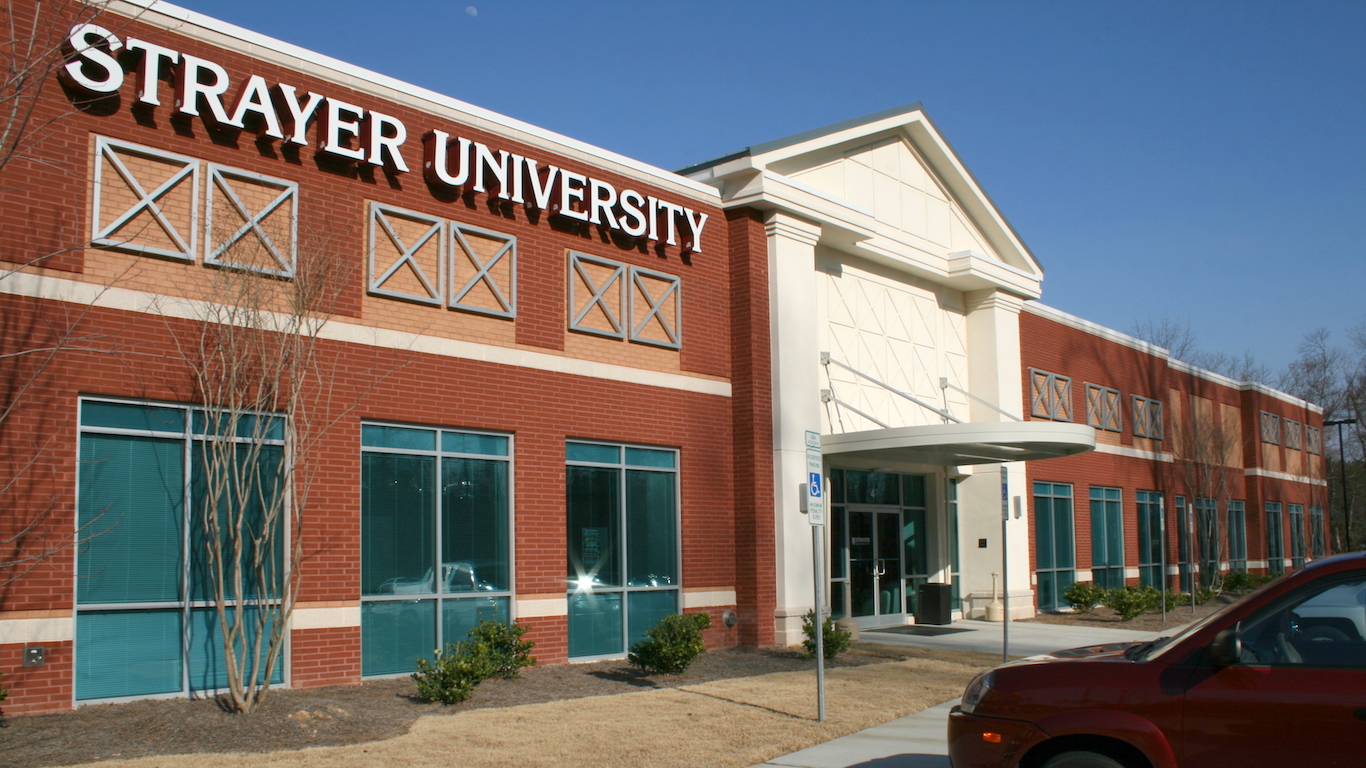
8. Delaware
> Most expensive college: Strayer University-Delaware
> Annual net price: $25,961
> Statewide 4-yr public university tuition: $11,680
> Strayer University-Delaware admission rate: Open admission policy
> Total state student aid spending per student: $414.39 (21st lowest)
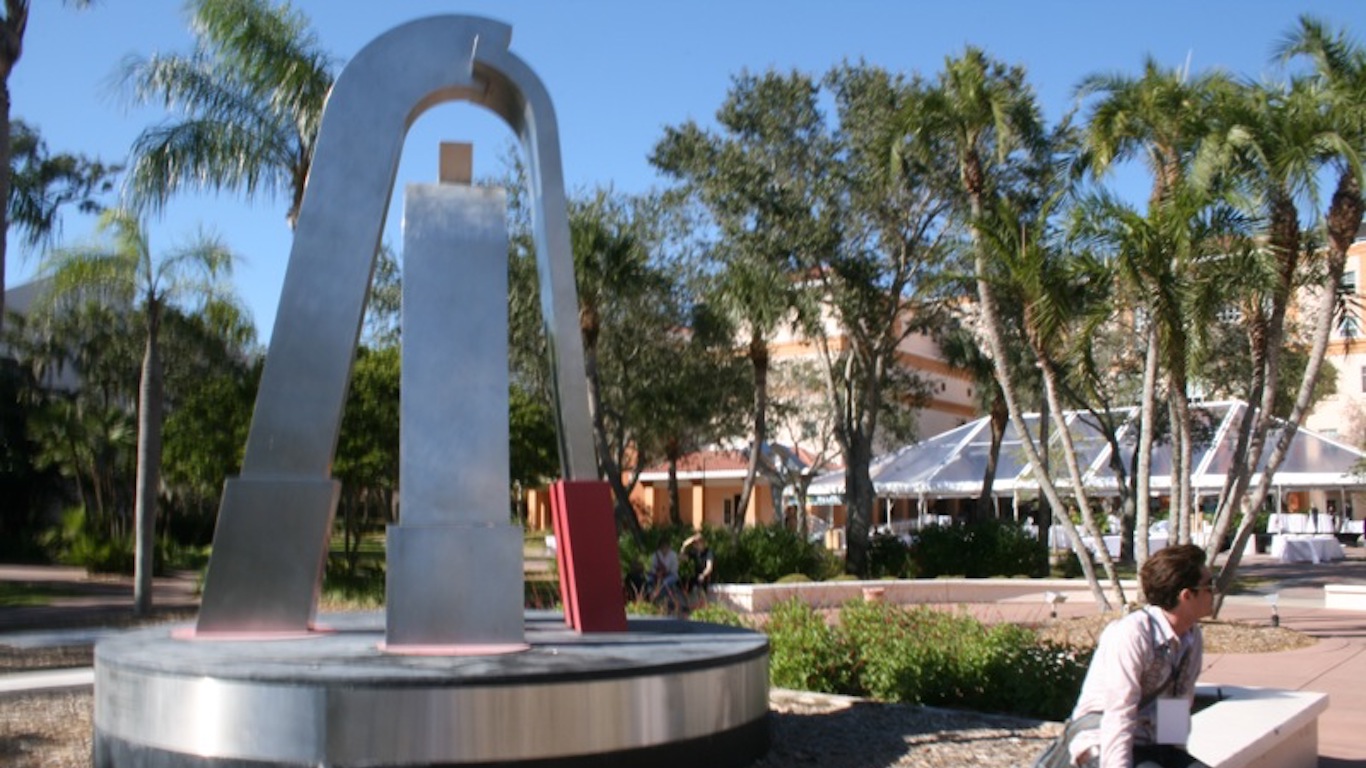
9. Florida
> Most expensive college: Ringling College of Art and Design
> Annual net price: $44,386
> Statewide 4-yr public university tuition: $4,346
> Ringling College of Art and Design admission rate: 78.1%
> Total state student aid spending per student: $509.50 (24th highest)
[in-text-ad-2]

10. Georgia
> Most expensive college: Savannah College of Art and Design
> Annual net price: $40,856
> Statewide 4-yr public university tuition: $7,012
> Savannah College of Art and Design admission rate: 71.7%
> Total state student aid spending per student: $1,232.02 (4th highest)
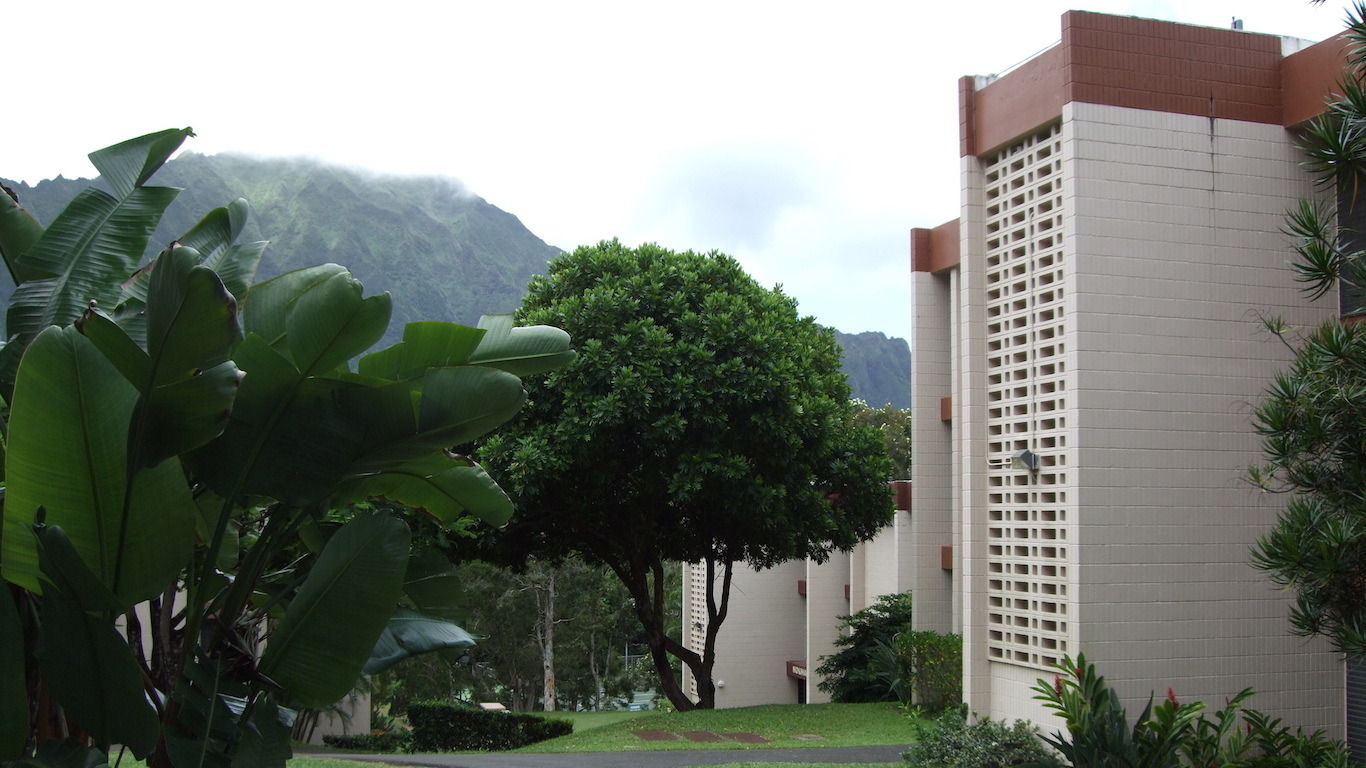
11. Hawaii
> Most expensive college: Hawaii Pacific University
> Annual net price: $27,245
> Statewide 4-yr public university tuition: $9,411
> Hawaii Pacific University admission rate: 75.4%
> Total state student aid spending per student: $62.43 (5th lowest)
[in-text-ad]
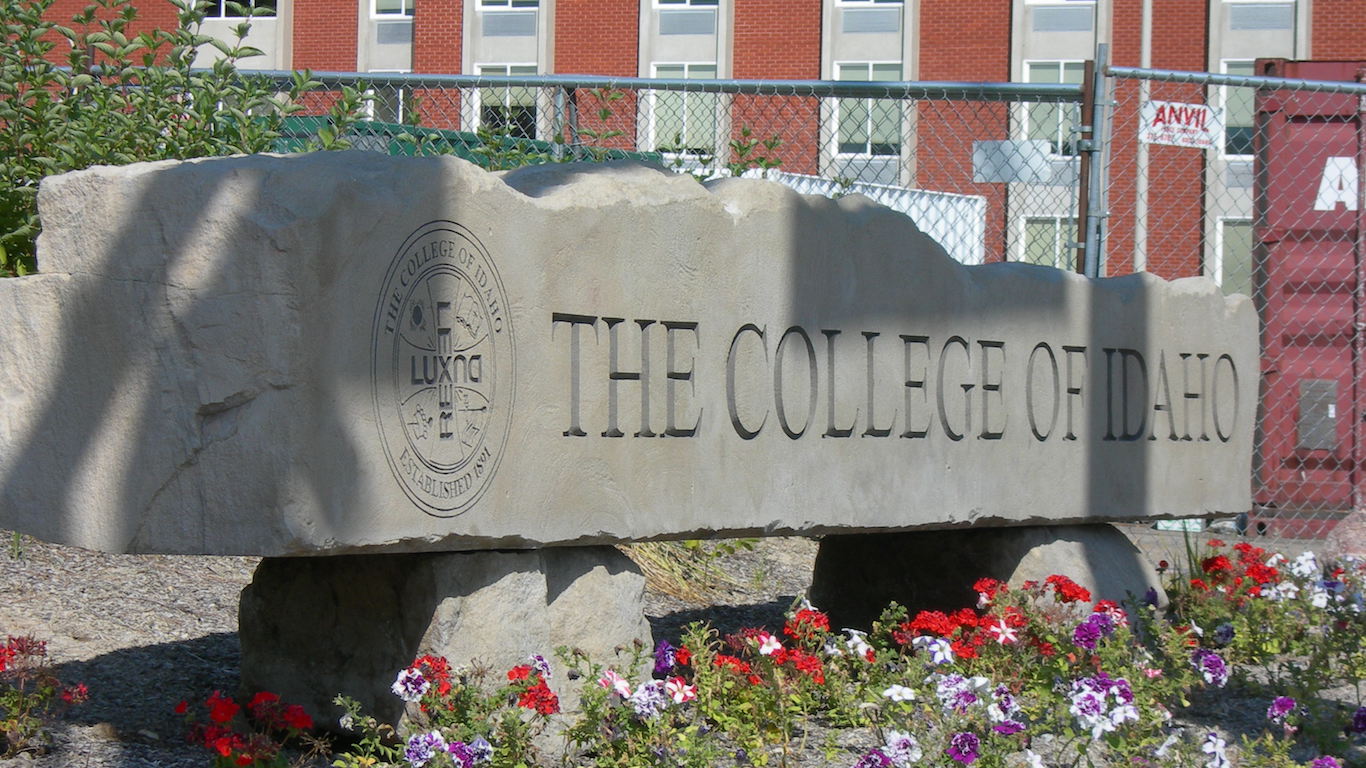
12. Idaho
> Most expensive college: The College of Idaho
> Annual net price: $24,747
> Statewide 4-yr public university tuition: $6,918
> The College of Idaho admission rate: 84.8%
> Total state student aid spending per student: $51.94 (4th lowest)
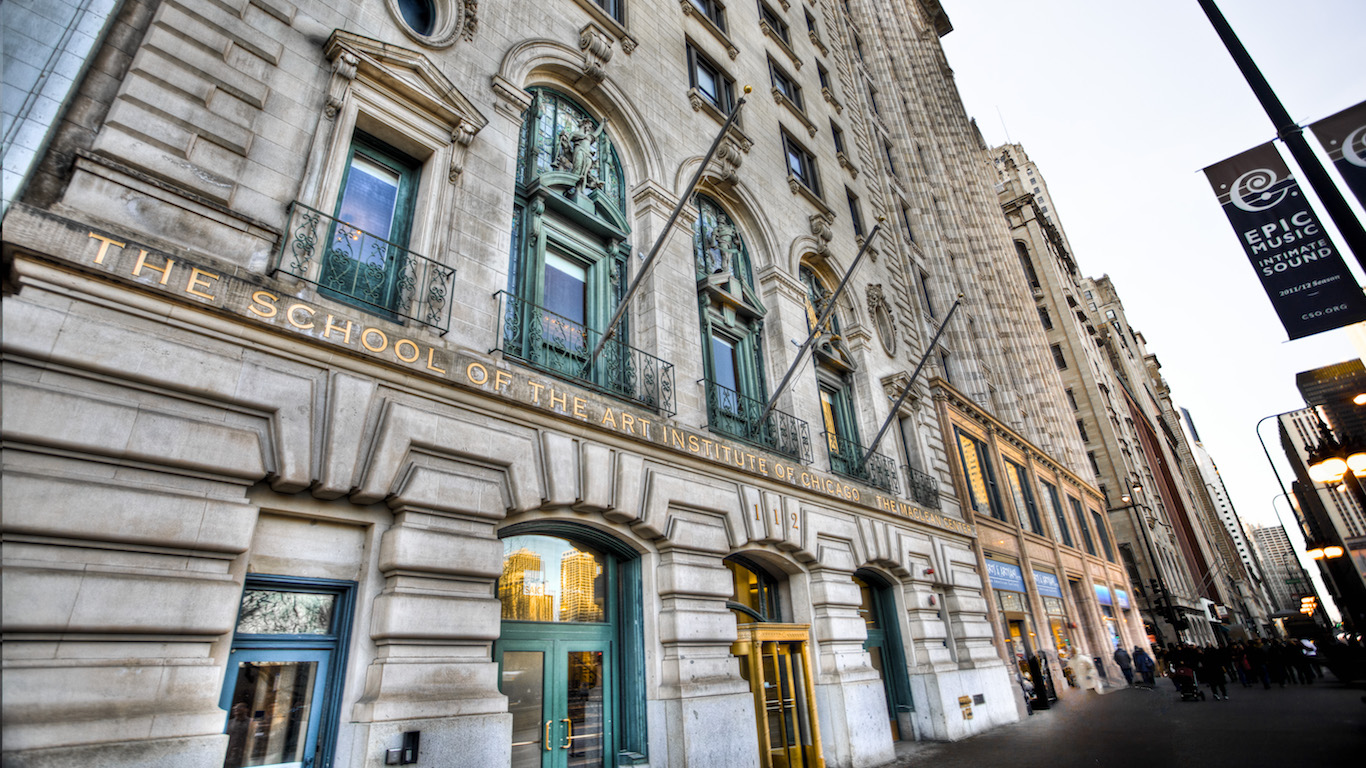
13. Illinois
> Most expensive college: School of the Art Institute of Chicago
> Annual net price: $43,494
> Statewide 4-yr public university tuition: $13,435
> School of the Art Institute of Chicago admission rate: 59.3%
> Total state student aid spending per student: $451.43 (24th lowest)
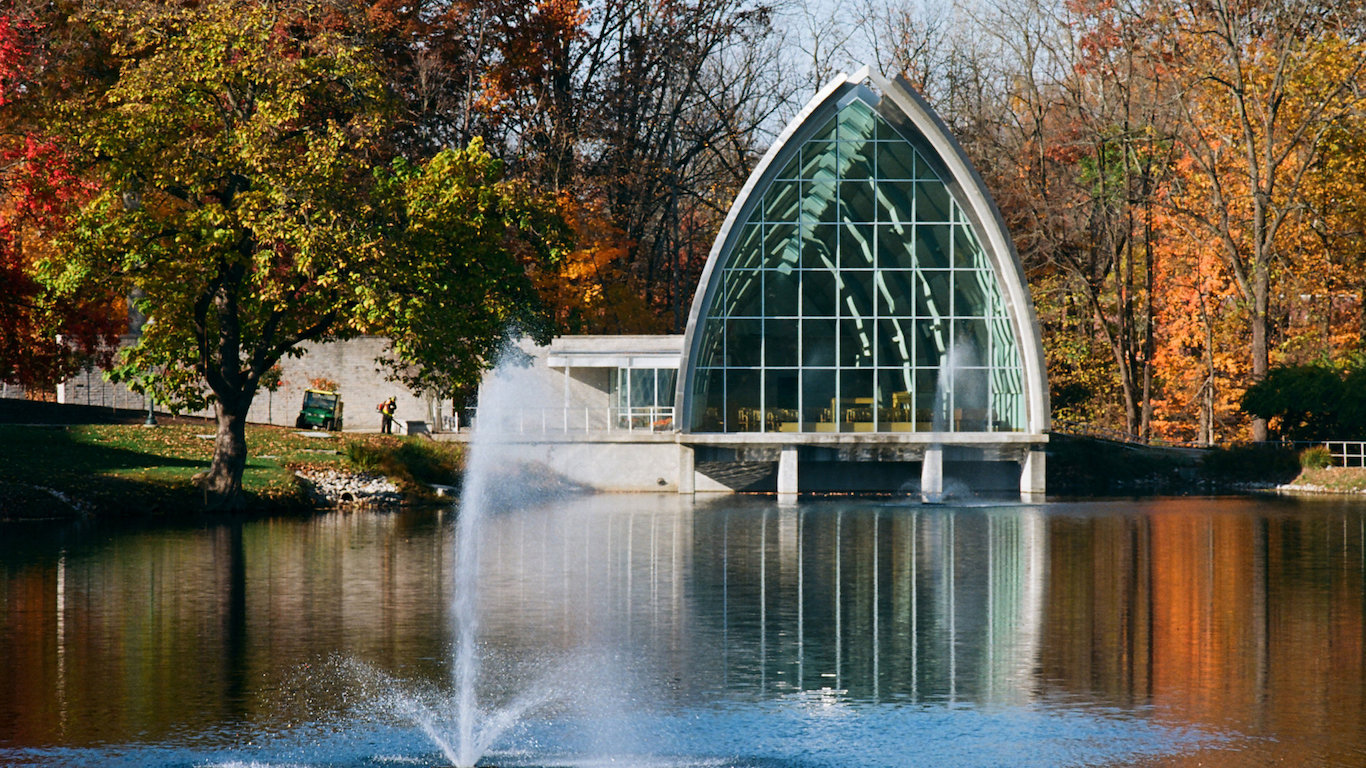
14. Indiana
> Most expensive college: Rose-Hulman Institute of Technology
> Annual net price: $41,691
> Statewide 4-yr public university tuition: $8,771
> Rose-Hulman Institute of Technology admission rate: 61.1%
> Total state student aid spending per student: $749.71 (15th highest)
[in-text-ad-2]
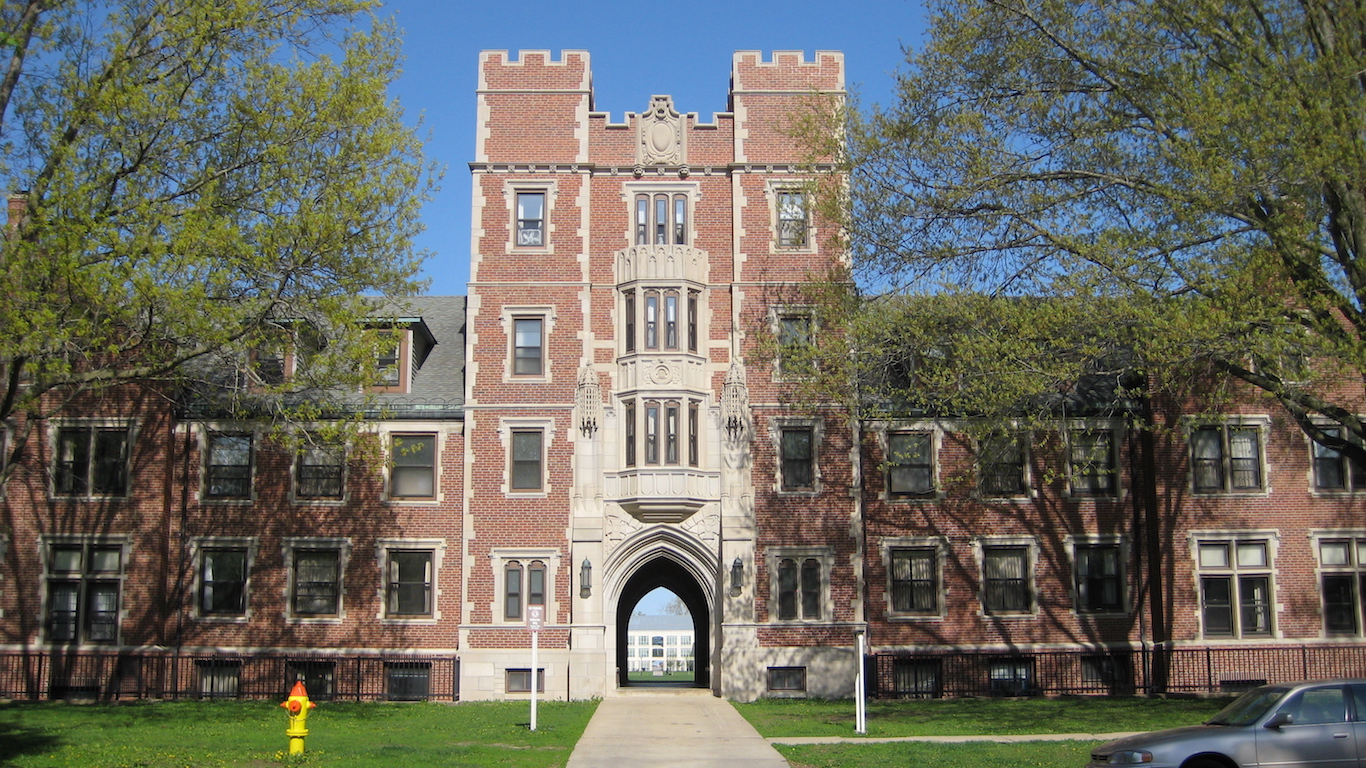
15. Iowa
> Most expensive college: Grinnell College
> Annual net price: $30,010
> Statewide 4-yr public university tuition: $7,879
> Grinnell College admission rate: 20.2%
> Total state student aid spending per student: $243.47 (14th lowest)

16. Kansas
> Most expensive college: Cleveland University-Kansas City
> Annual net price: $37,161
> Statewide 4-yr public university tuition: $8,043
> Cleveland University-Kansas City admission rate: Open admission policy
> Total state student aid spending per student: $102.56 (8th lowest)
[in-text-ad]
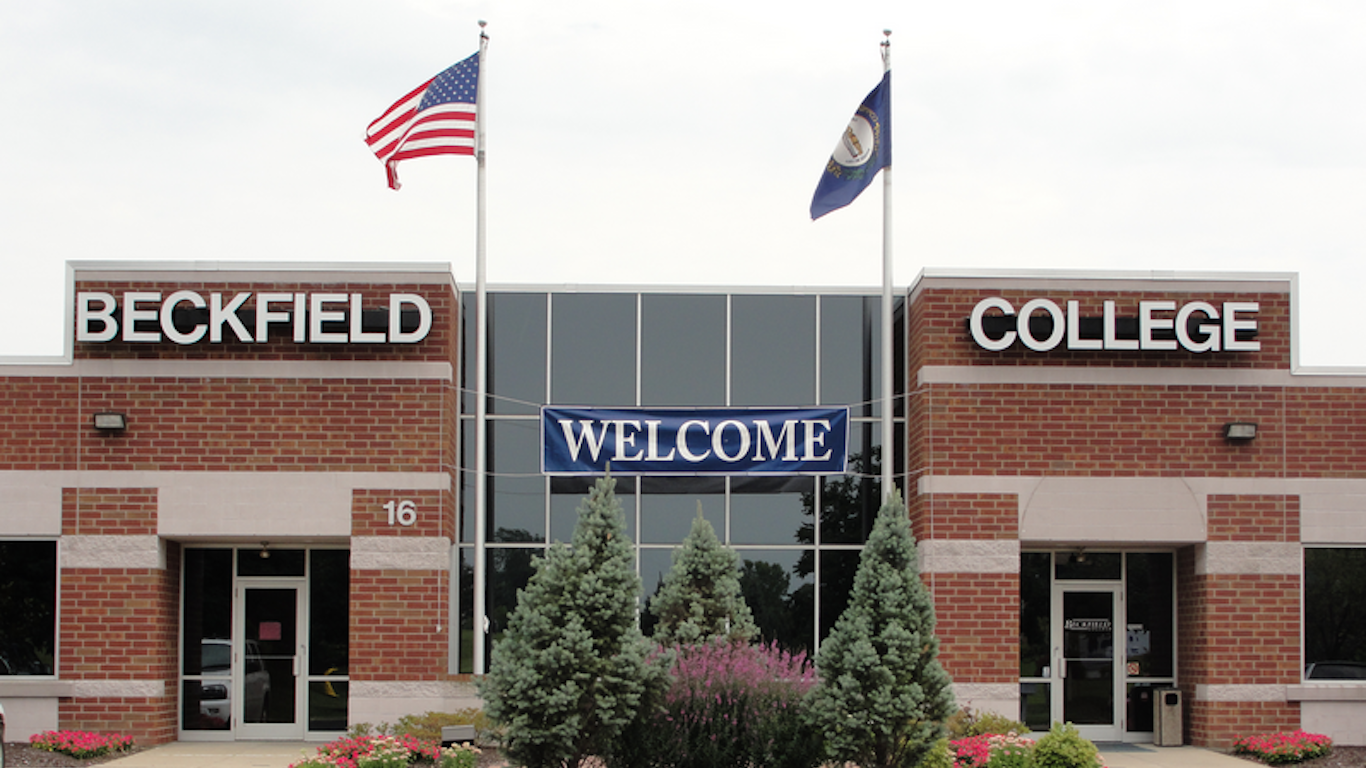
17. Kentucky
> Most expensive college: Beckfield College-Florence
> Annual net price: $27,812
> Statewide 4-yr public university tuition: $9,503
> Beckfield College-Florence admission rate: Open admission policy
> Total state student aid spending per student: $802.00 (13th highest)
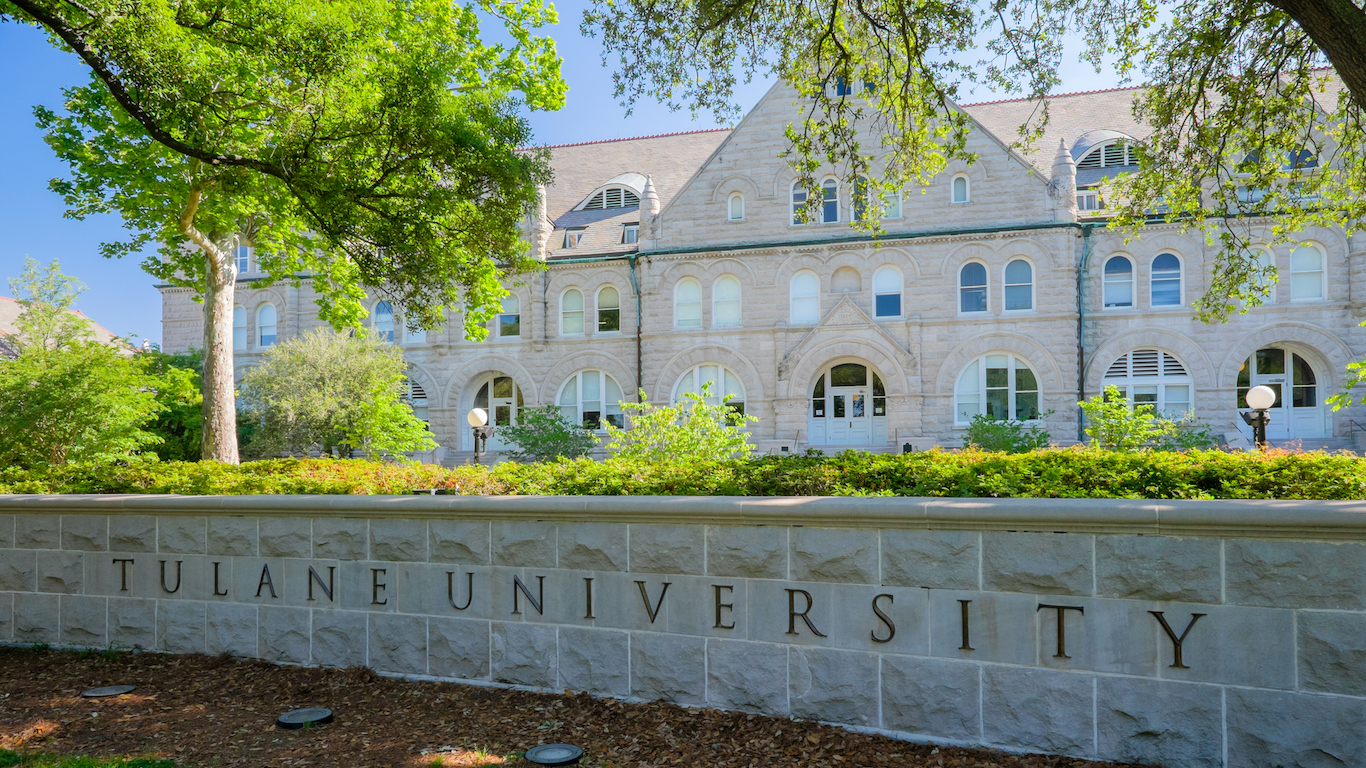
18. Louisiana
> Most expensive college: Tulane University of Louisiana
> Annual net price: $32,515
> Statewide 4-yr public university tuition: $8,139
> Tulane University of Louisiana admission rate: 25.5%
> Total state student aid spending per student: $1,124.12 (7th highest)

19. Maine
> Most expensive college: University of New England
> Annual net price: $32,962
> Statewide 4-yr public university tuition: $9,179
> University of New England admission rate: 83.1%
> Total state student aid spending per student: $225.78 (12th lowest)
[in-text-ad-2]
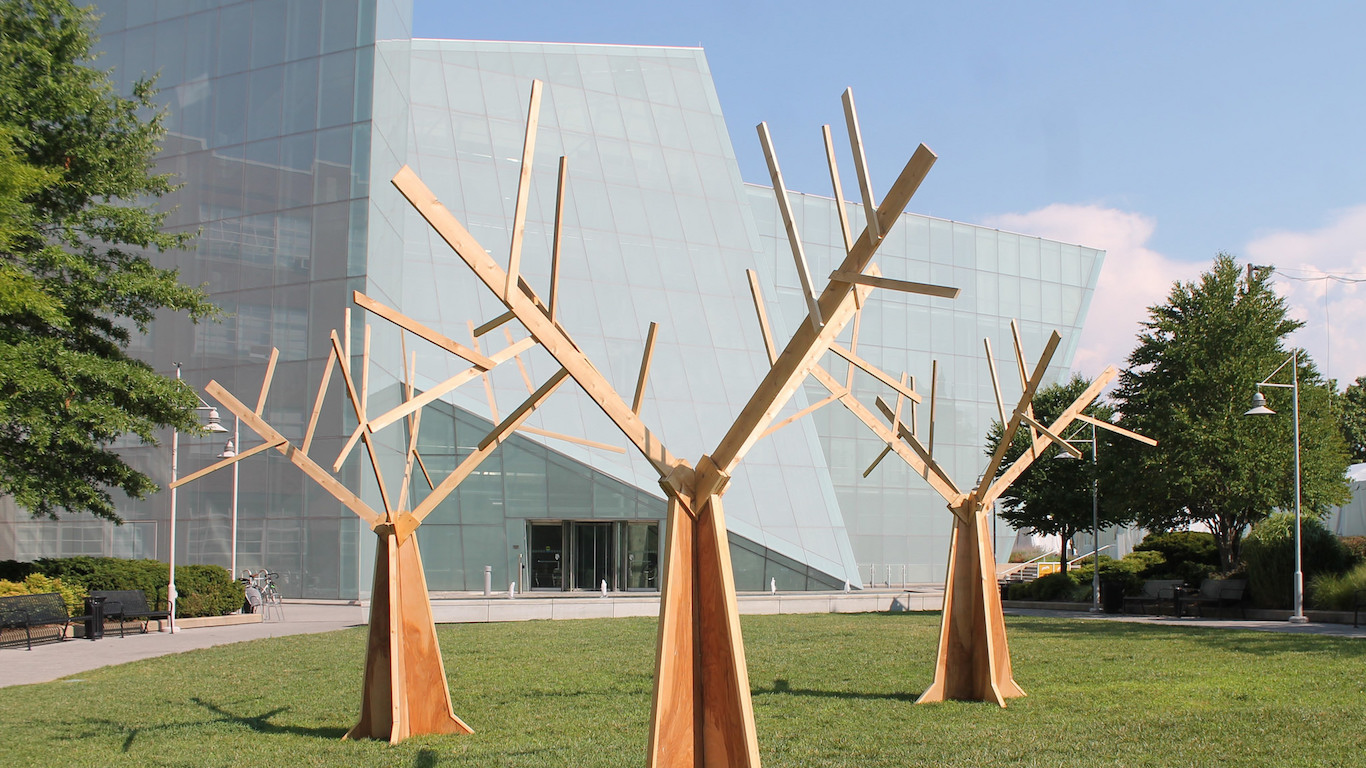
20. Maryland
> Most expensive college: Maryland Institute College of Art
> Annual net price: $41,889
> Statewide 4-yr public university tuition: $8,530
> Maryland Institute College of Art admission rate: 57.1%
> Total state student aid spending per student: $292.65 (17th lowest)
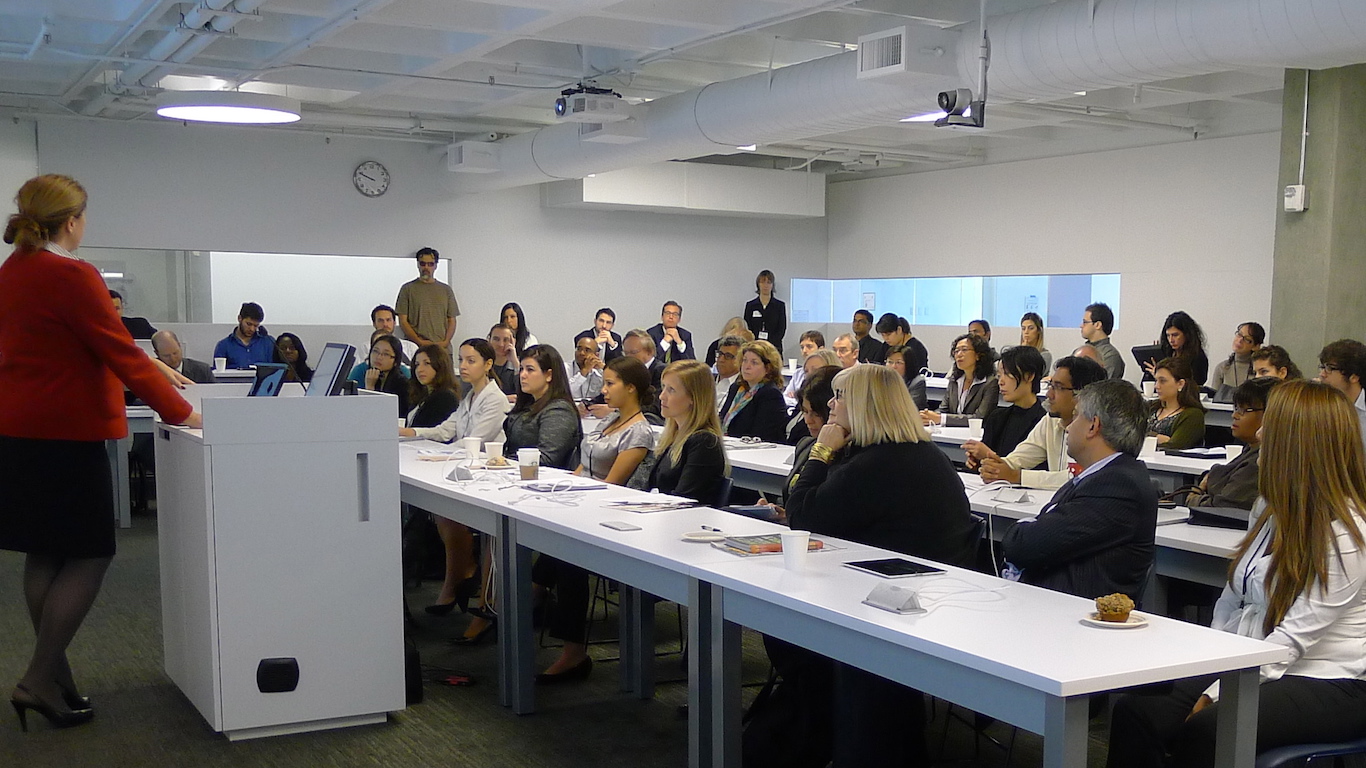
21. Massachusetts
> Most expensive college: Hult International Business School
> Annual net price: $41,841
> Statewide 4-yr public university tuition: $11,666
> Hult International Business School admission rate: 56.6%
> Total state student aid spending per student: $269.71 (15th lowest)
[in-text-ad]
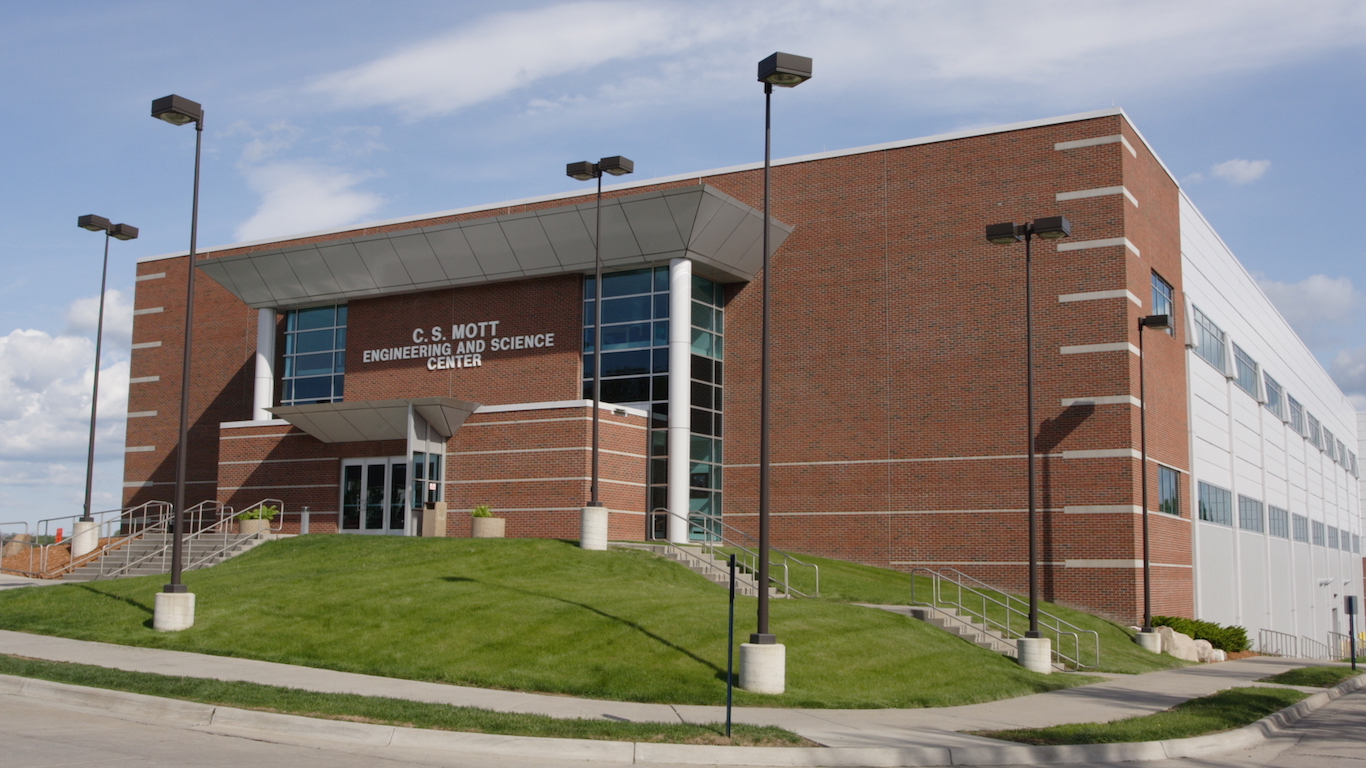
22. Michigan
> Most expensive college: Kettering University
> Annual net price: $37,169
> Statewide 4-yr public university tuition: $11,611
> Kettering University admission rate: 71.8%
> Total state student aid spending per student: $169.07 (10th lowest)
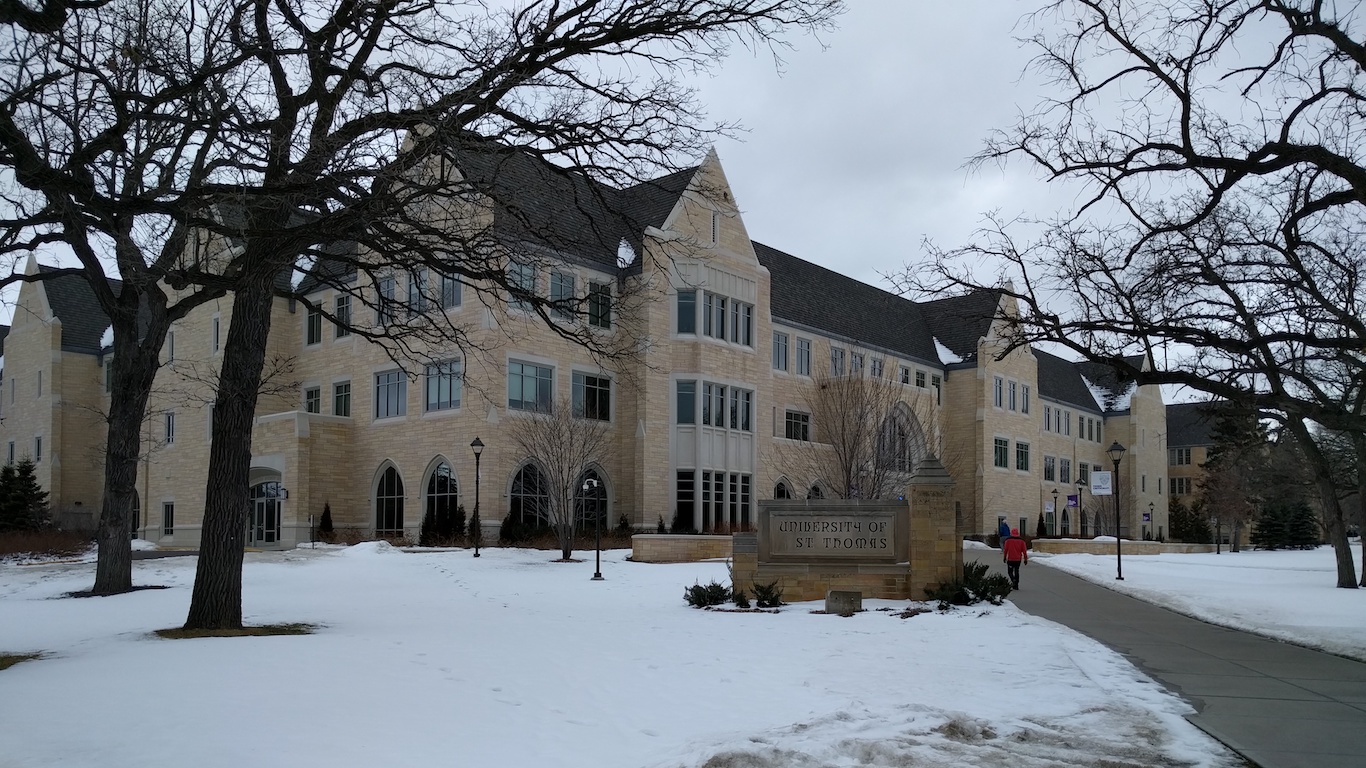
23. Minnesota
> Most expensive college: University of St Thomas
> Annual net price: $30,791
> Statewide 4-yr public university tuition: $10,815
> University of St Thomas admission rate: 82.7%
> Total state student aid spending per student: $601.96 (22nd highest)
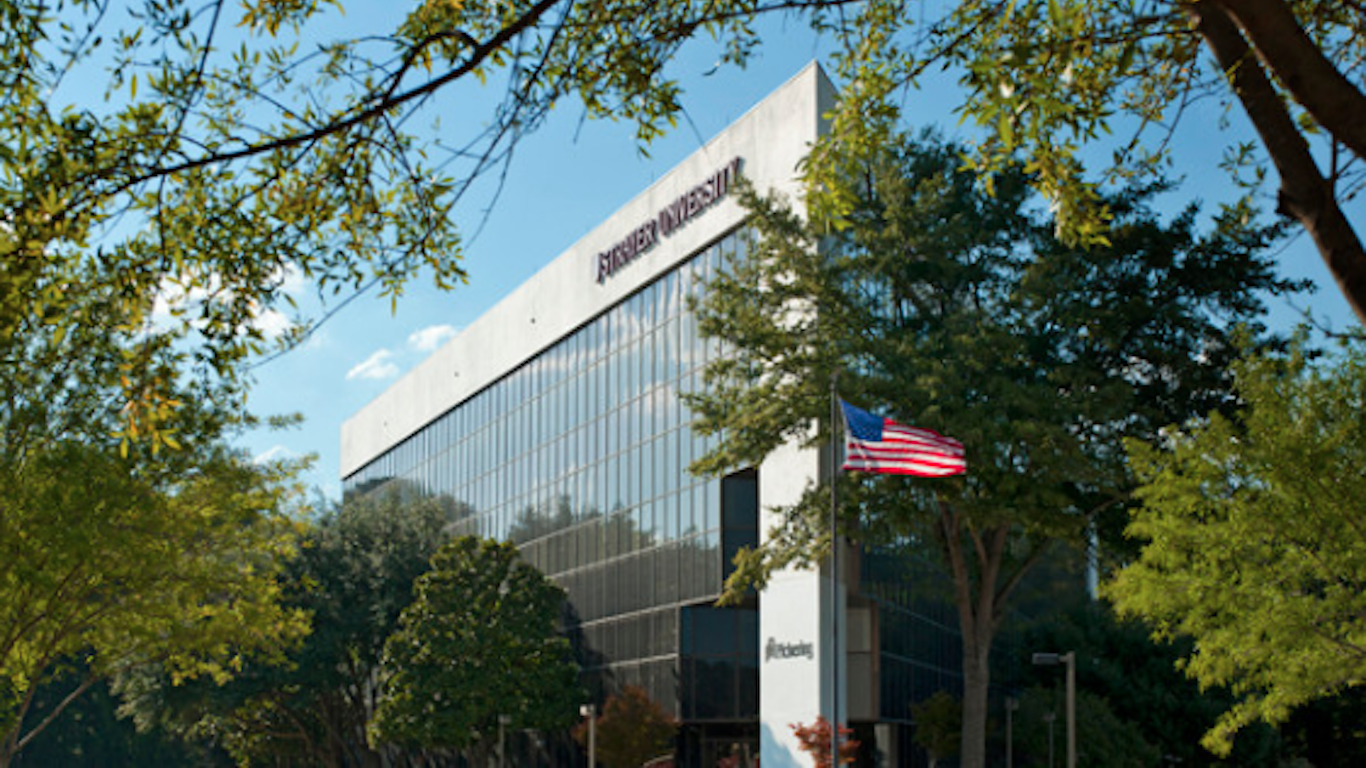
24. Mississippi
> Most expensive college: Strayer University-Mississippi
> Annual net price: $27,619
> Statewide 4-yr public university tuition: $7,162
> Strayer University-Mississippi admission rate: Open admission policy
> Total state student aid spending per student: $235.16 (13th lowest)
[in-text-ad-2]
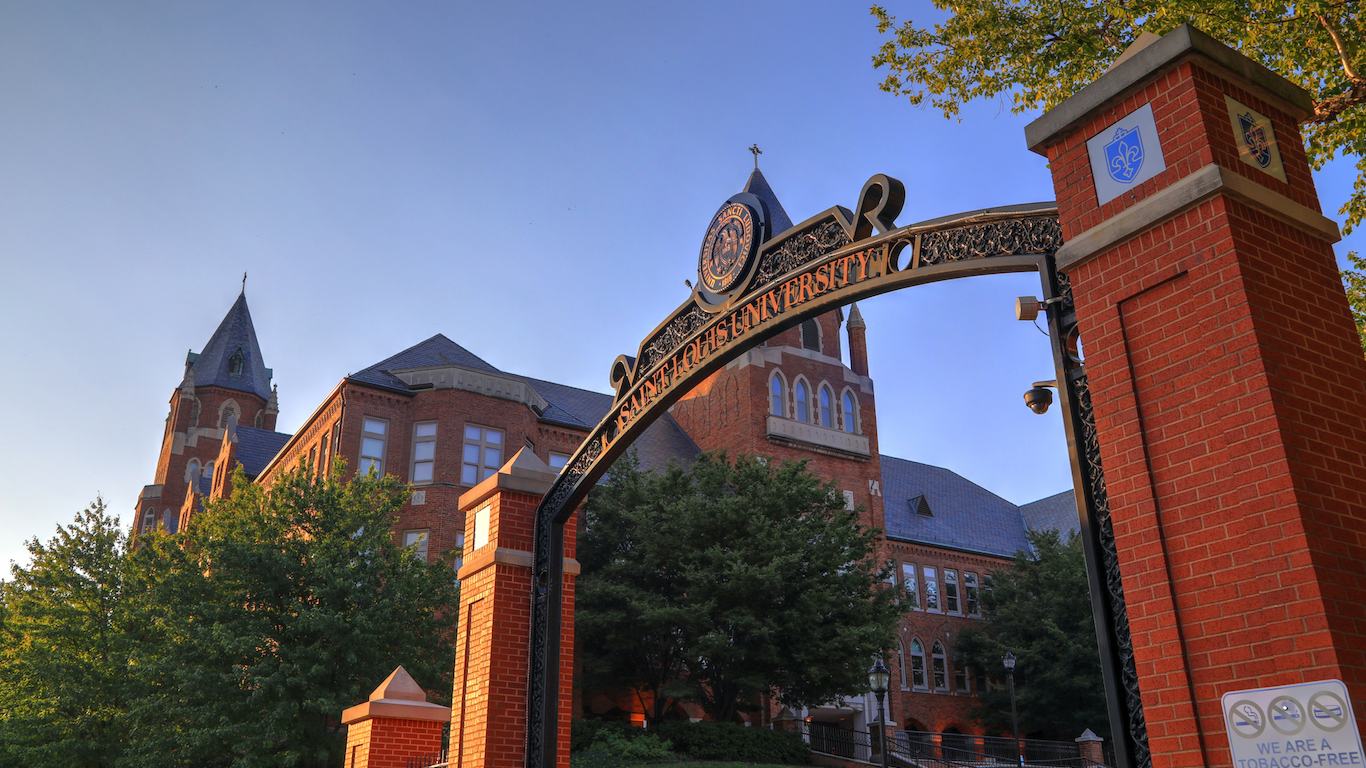
25. Missouri
> Most expensive college: Saint Louis University
> Annual net price: $33,222
> Statewide 4-yr public university tuition: $8,198
> Saint Louis University admission rate: 64.7%
> Total state student aid spending per student: $271.57 (16th lowest)
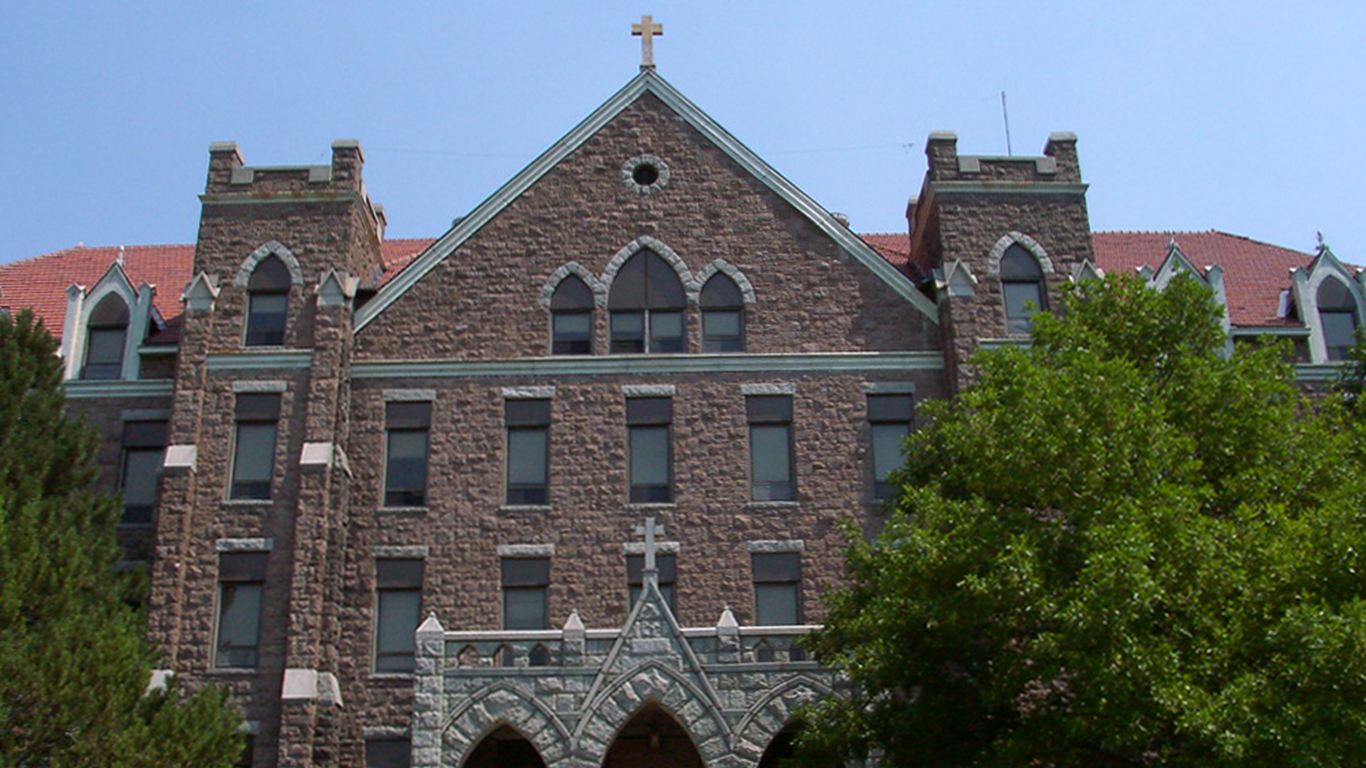
26. Montana
> Most expensive college: Carroll College
> Annual net price: $25,449
> Statewide 4-yr public university tuition: $6,429
> Carroll College admission rate: 71.5%
> Total state student aid spending per student: $116.29 (9th lowest)
[in-text-ad]
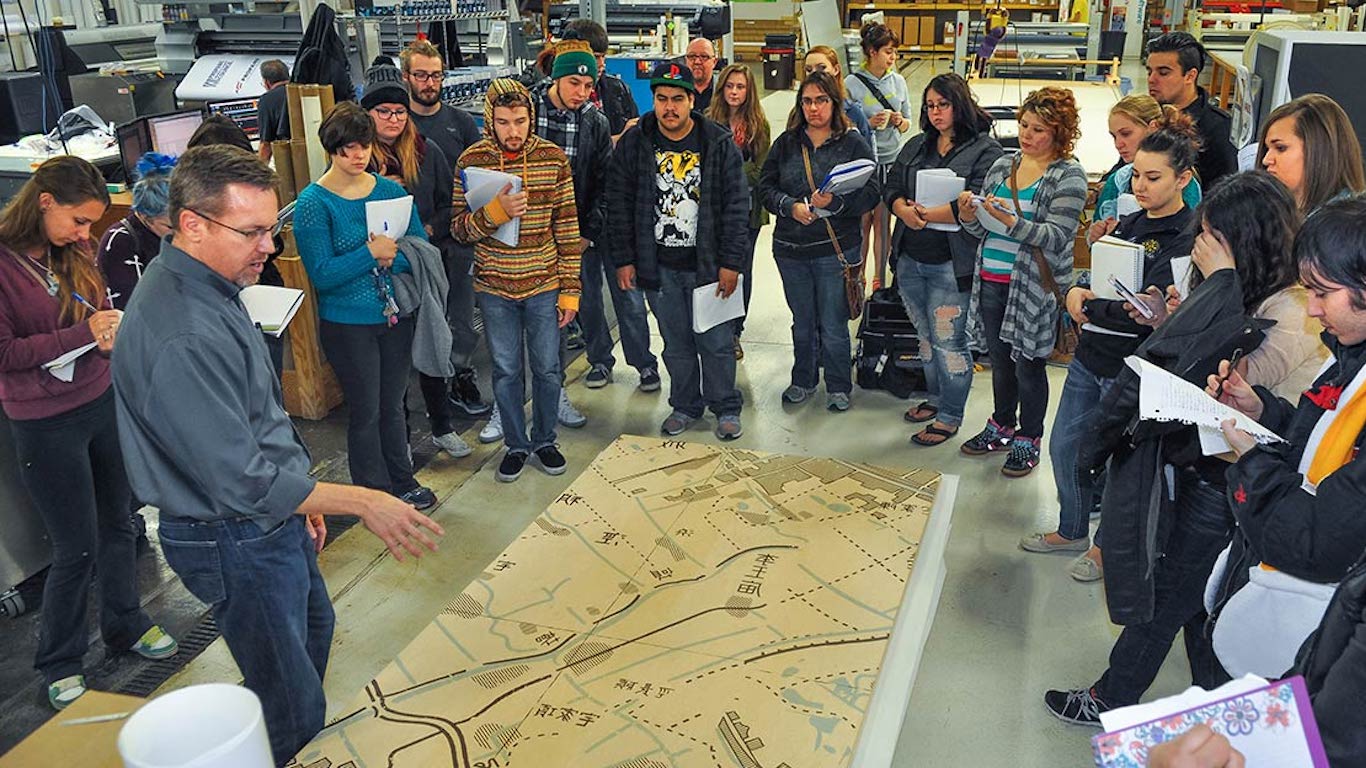
27. Nebraska
> Most expensive college: The Creative Center
> Annual net price: $34,746
> Statewide 4-yr public university tuition: $7,430
> The Creative Center admission rate: 74.0%
> Total state student aid spending per student: $1,101.48 (8th highest)
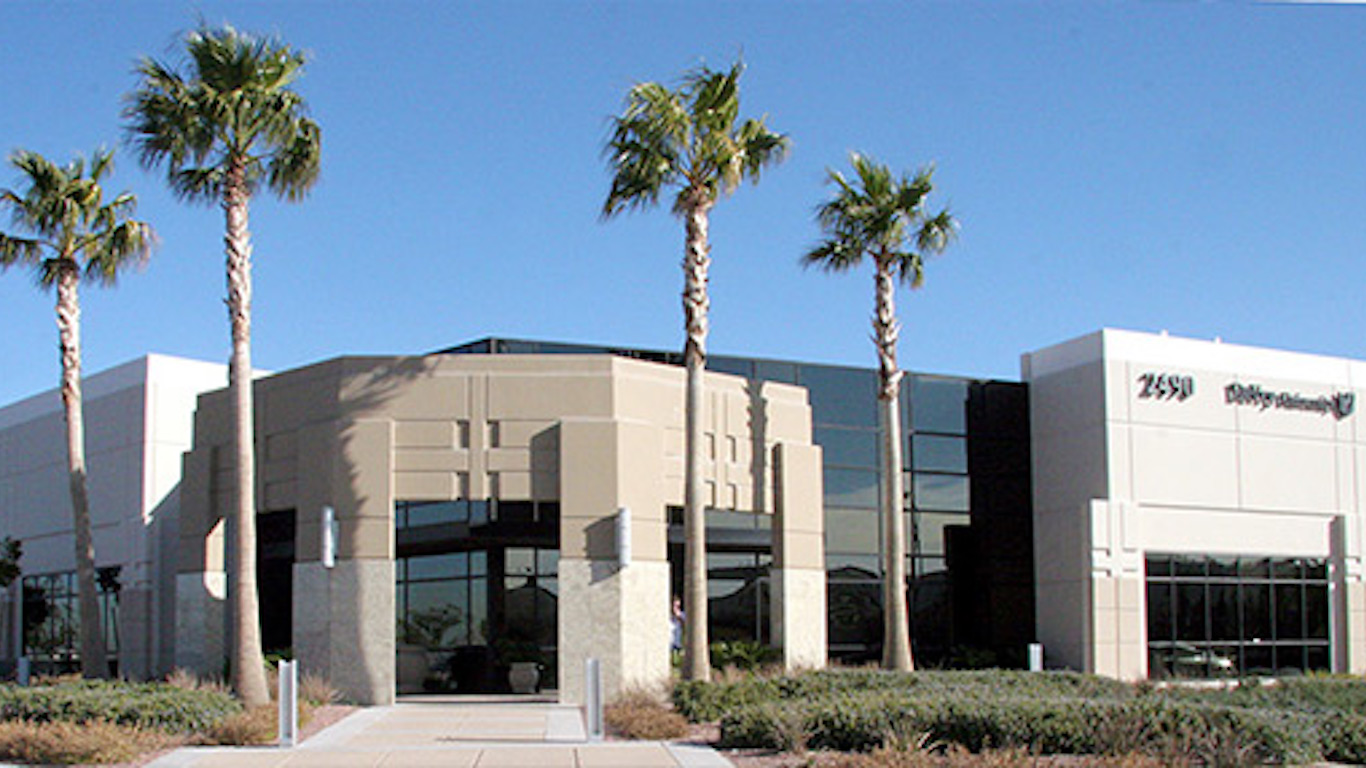
28. Nevada
> Most expensive college: DeVry University-Nevada
> Annual net price: $31,081
> Statewide 4-yr public university tuition: $5,172
> DeVry University-Nevada admission rate: 100.0%
> Total state student aid spending per student: $478.84 (25th highest)
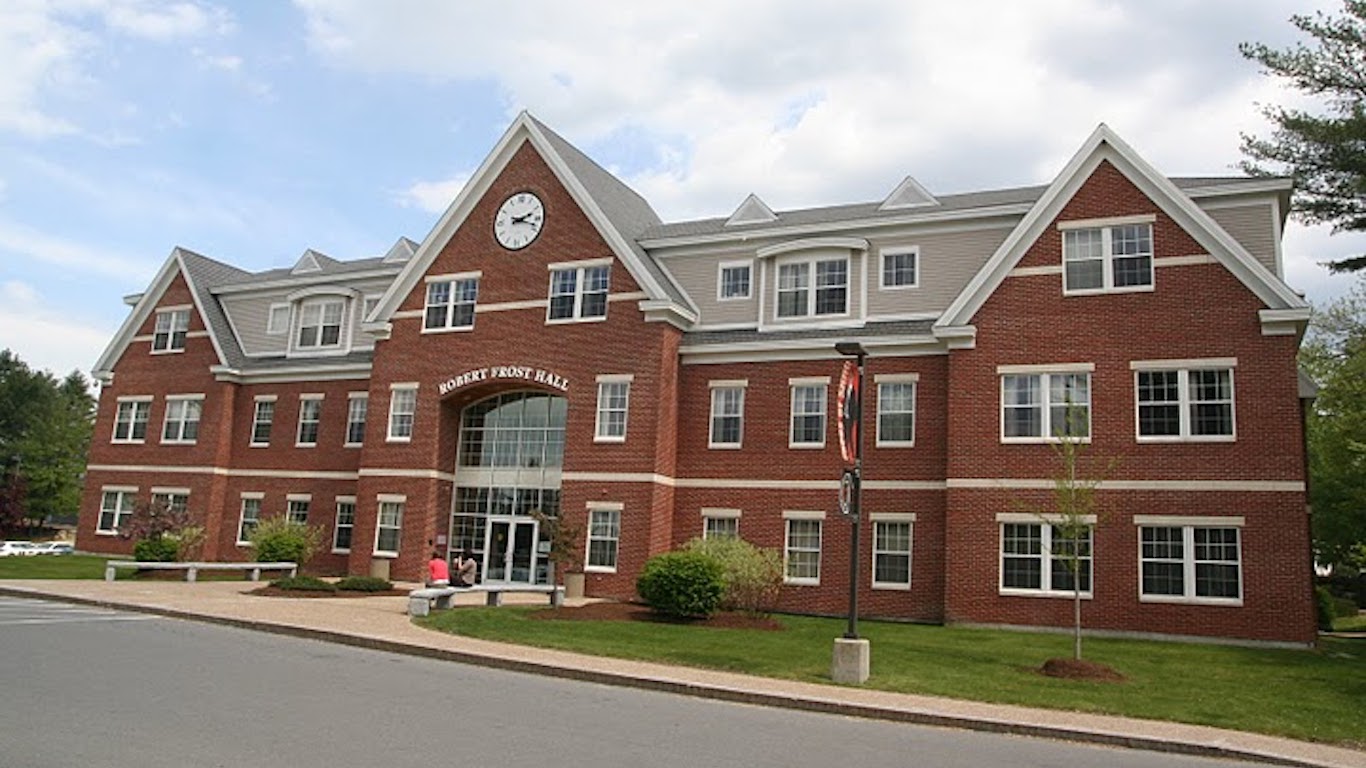
29. New Hampshire
> Most expensive college: Southern New Hampshire University
> Annual net price: $34,984
> Statewide 4-yr public university tuition: $14,955
> Southern New Hampshire University admission rate: 92.9%
> Total state student aid spending per student: $00.08 (the lowest)
[in-text-ad-2]
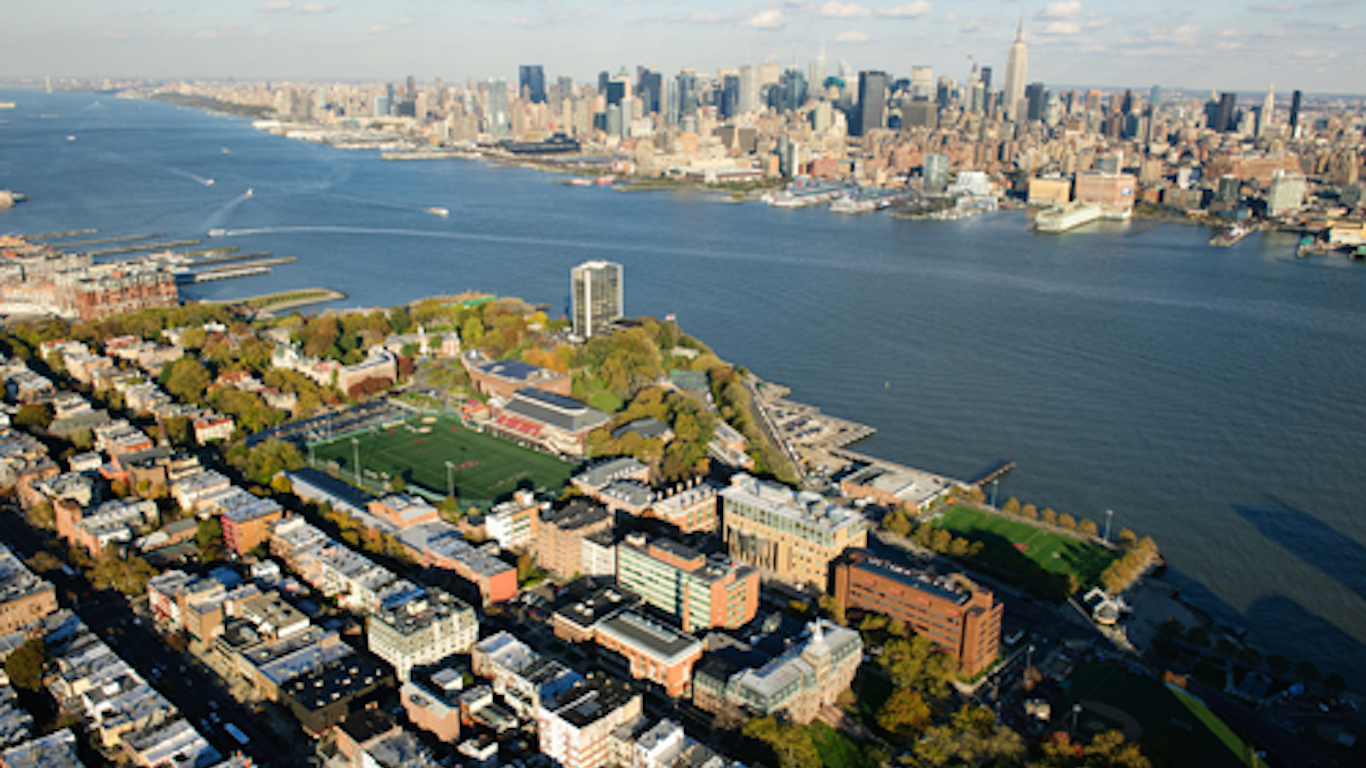
30. New Jersey
> Most expensive college: Stevens Institute of Technology
> Annual net price: $37,168
> Statewide 4-yr public university tuition: $13,105
> Stevens Institute of Technology admission rate: 39.1%
> Total state student aid spending per student: $1,363.72 (3rd highest)
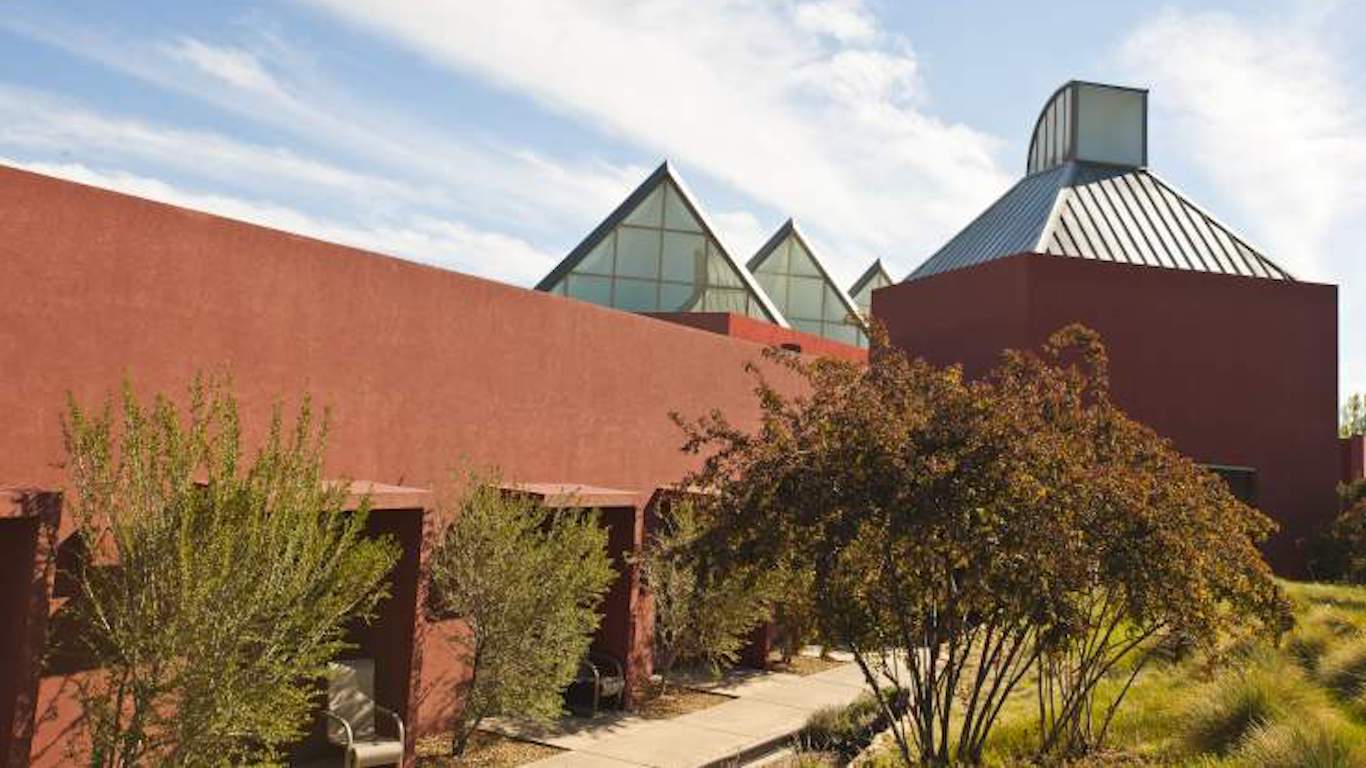
31. New Mexico
> Most expensive college: Santa Fe University of Art and Design
> Annual net price: $29,245
> Statewide 4-yr public university tuition: $6,271
> Santa Fe University of Art and Design admission rate: 98.4%
> Total state student aid spending per student: $894.68 (11th highest)
[in-text-ad]

32. New York
> Most expensive college: The New School
> Annual net price: $45,504
> Statewide 4-yr public university tuition: $7,519
> The New School admission rate: 60.1%
> Total state student aid spending per student: $855.41 (12th highest)
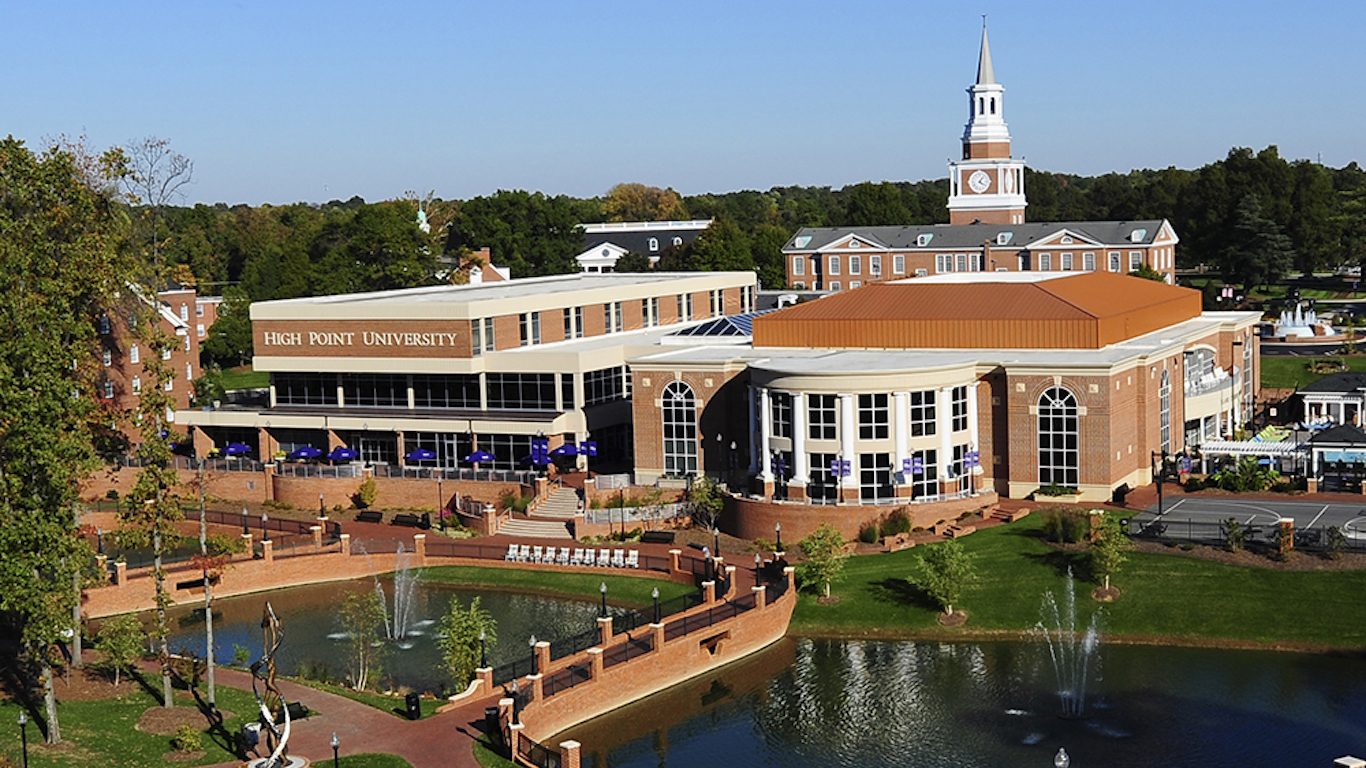
33. North Carolina
> Most expensive college: High Point University
> Annual net price: $38,317
> Statewide 4-yr public university tuition: $6,949
> High Point University admission rate: 79.1%
> Total state student aid spending per student: $669.90 (19th highest)
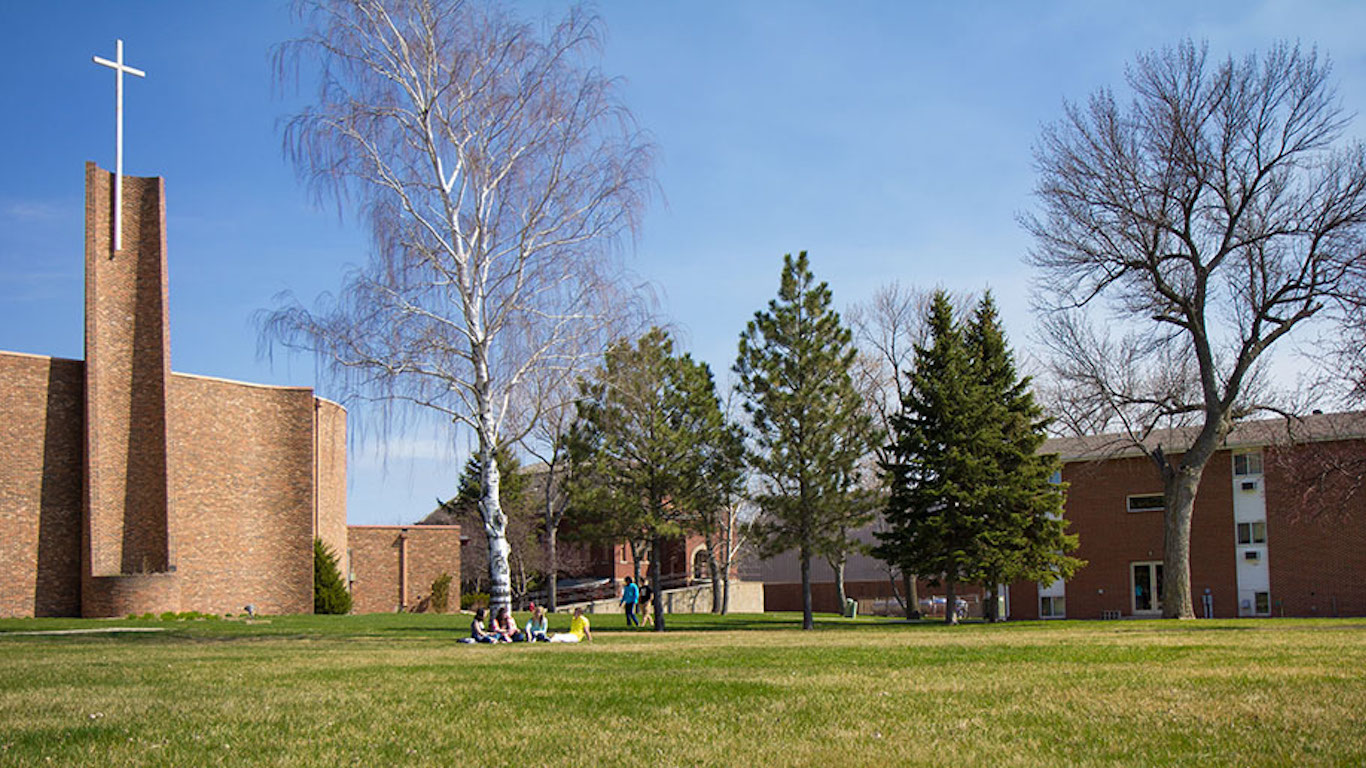
34. North Dakota
> Most expensive college: Trinity Bible College and Graduate School
> Annual net price: $20,554
> Statewide 4-yr public university tuition: $7,220
> Trinity Bible College and Graduate School admission rate: 59.4%
> Total state student aid spending per student: $361.90 (18th lowest)
[in-text-ad-2]
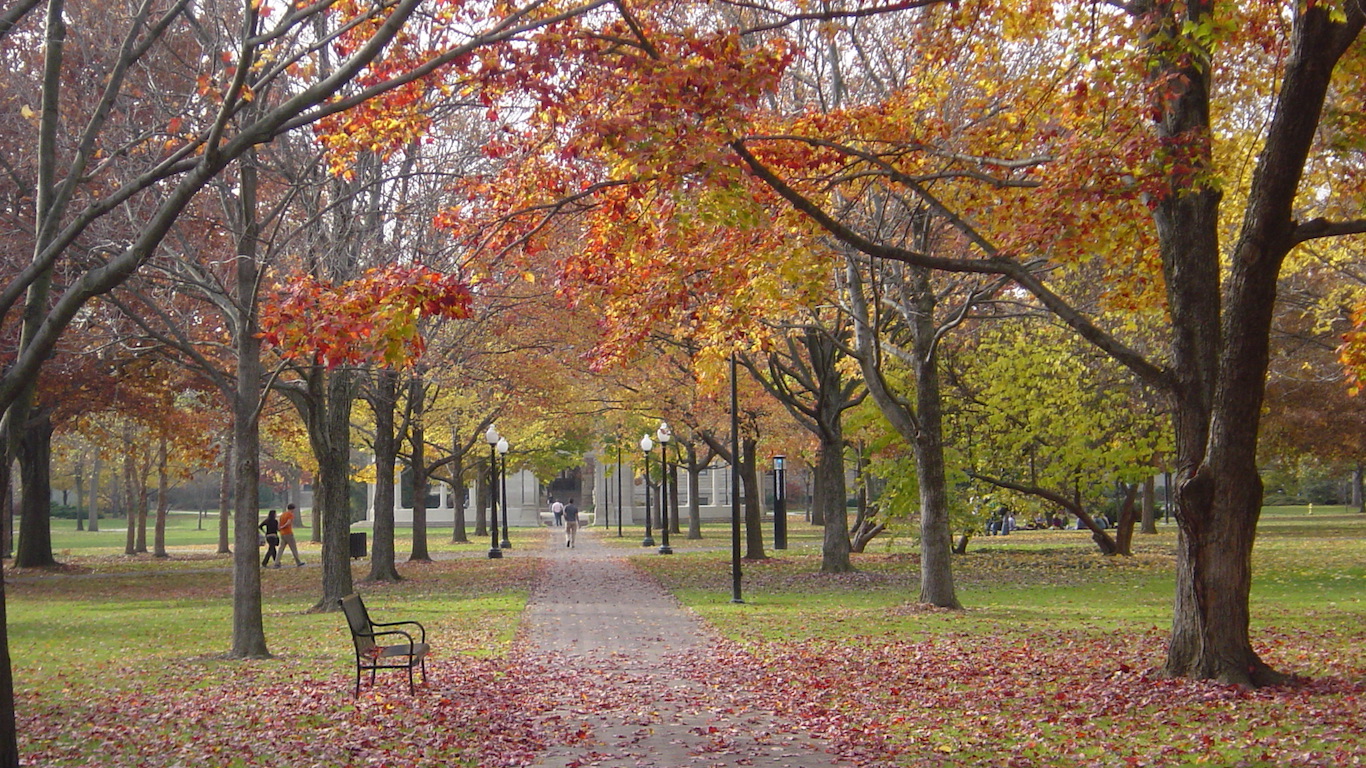
35. Ohio
> Most expensive college: Oberlin College
> Annual net price: $42,105
> Statewide 4-yr public university tuition: $9,772
> Oberlin College admission rate: 28.0%
> Total state student aid spending per student: $191.26 (11th lowest)
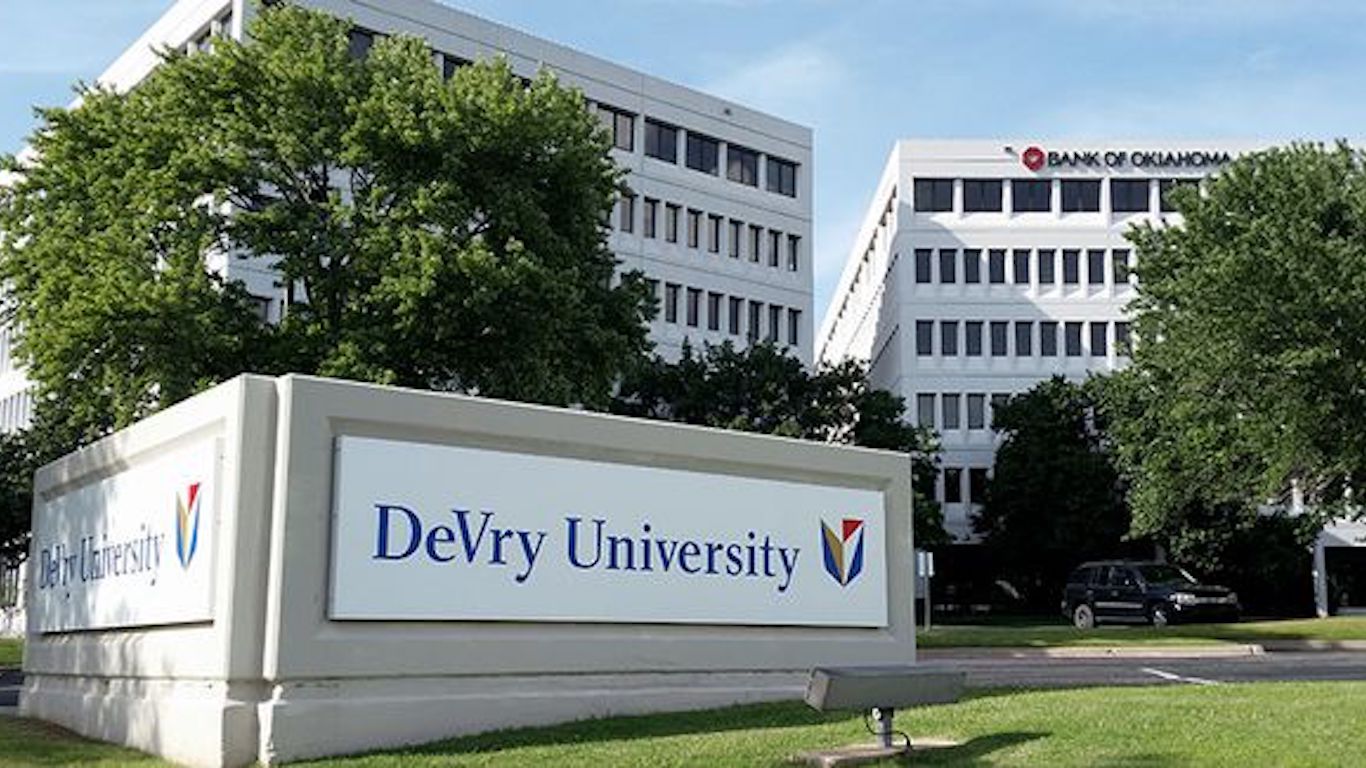
36. Oklahoma
> Most expensive college: DeVry University-Oklahoma
> Annual net price: $35,752
> Statewide 4-yr public university tuition: $6,638
> DeVry University-Oklahoma admission rate: 100.0%
> Total state student aid spending per student: $1,465.05 (2nd highest)
[in-text-ad]
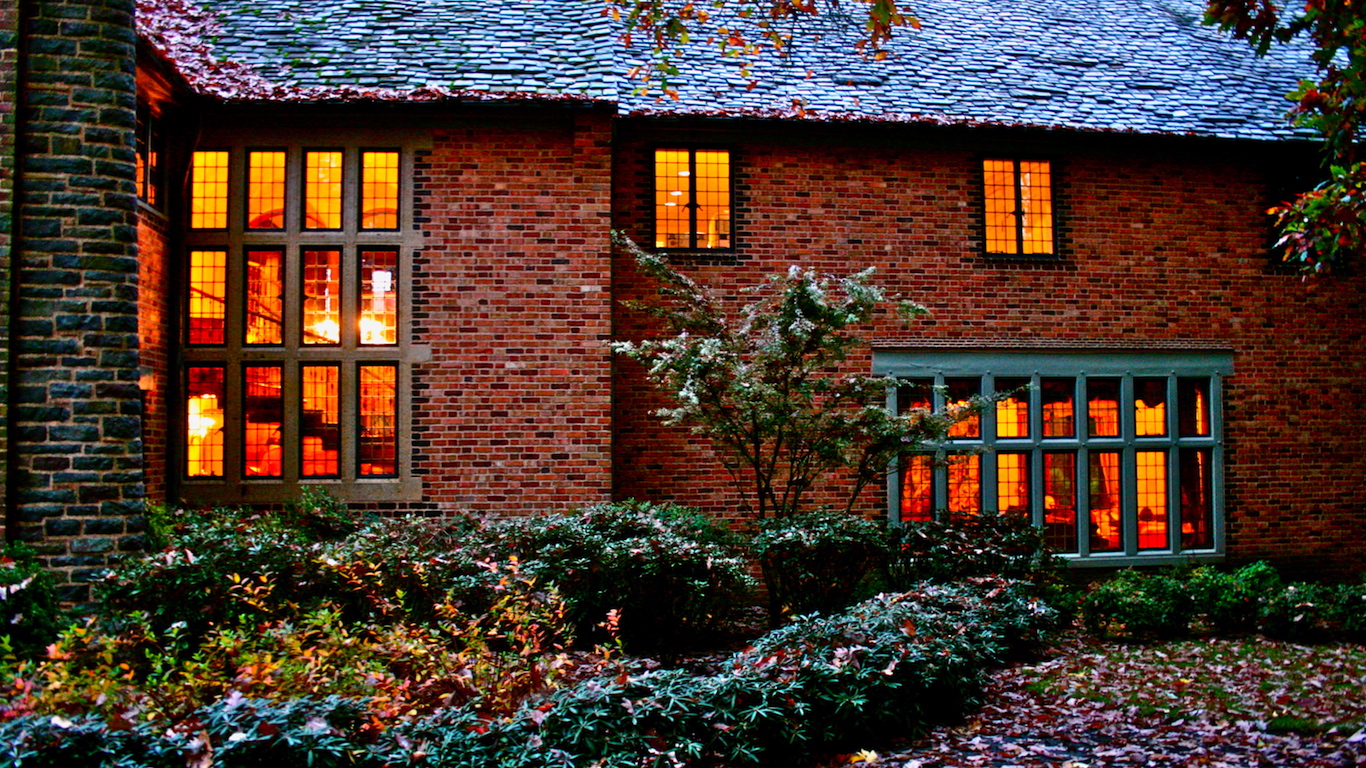
37. Oregon
> Most expensive college: Lewis & Clark College
> Annual net price: $35,849
> Statewide 4-yr public university tuition: $9,444
> Lewis & Clark College admission rate: 55.0%
> Total state student aid spending per student: $566.18 (23rd highest)
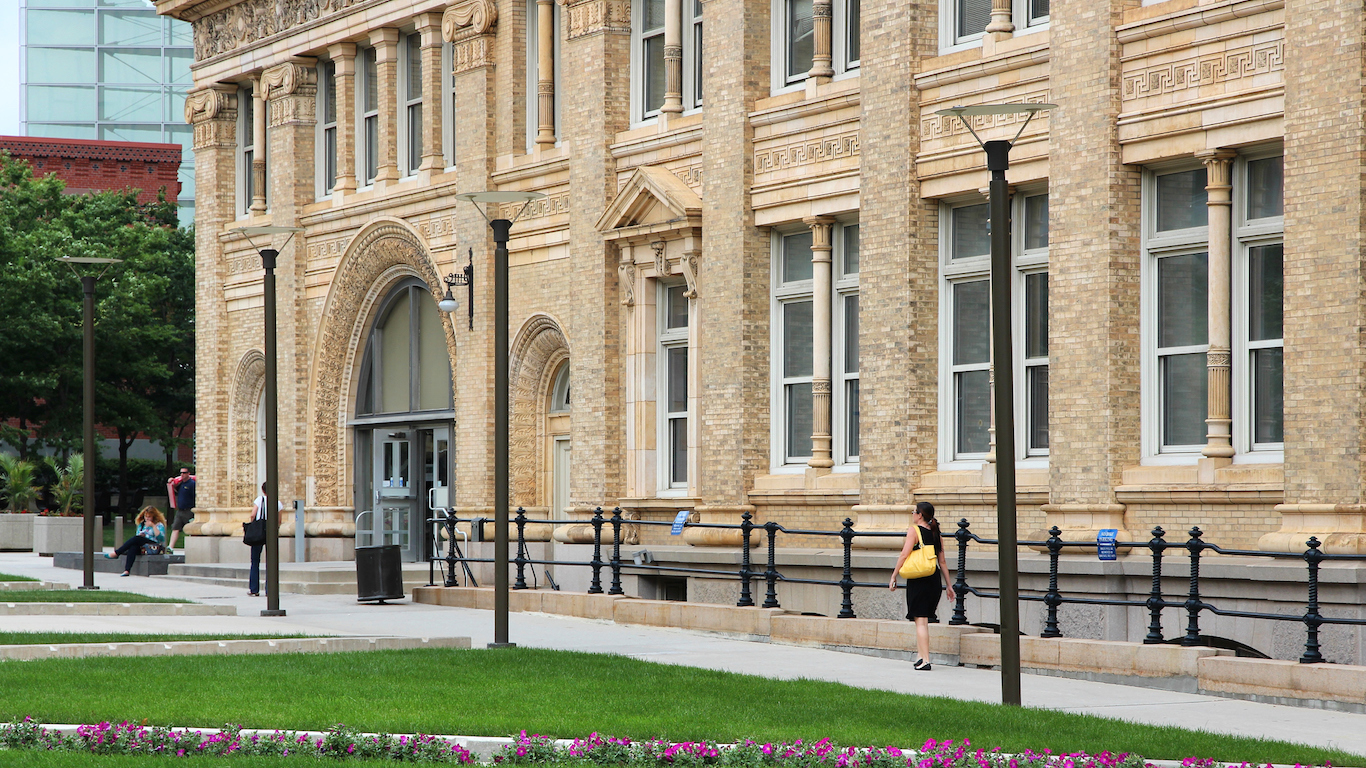
38. Pennsylvania
> Most expensive college: Drexel University
> Annual net price: $39,021
> Statewide 4-yr public university tuition: $13,540
> Drexel University admission rate: 74.6%
> Total state student aid spending per student: $628.98 (21st highest)

39. Rhode Island
> Most expensive college: Rhode Island School of Design
> Annual net price: $39,389
> Statewide 4-yr public university tuition: $11,339
> Rhode Island School of Design admission rate: 34.1%
> Total state student aid spending per student: $89.51 (6th lowest)
[in-text-ad-2]
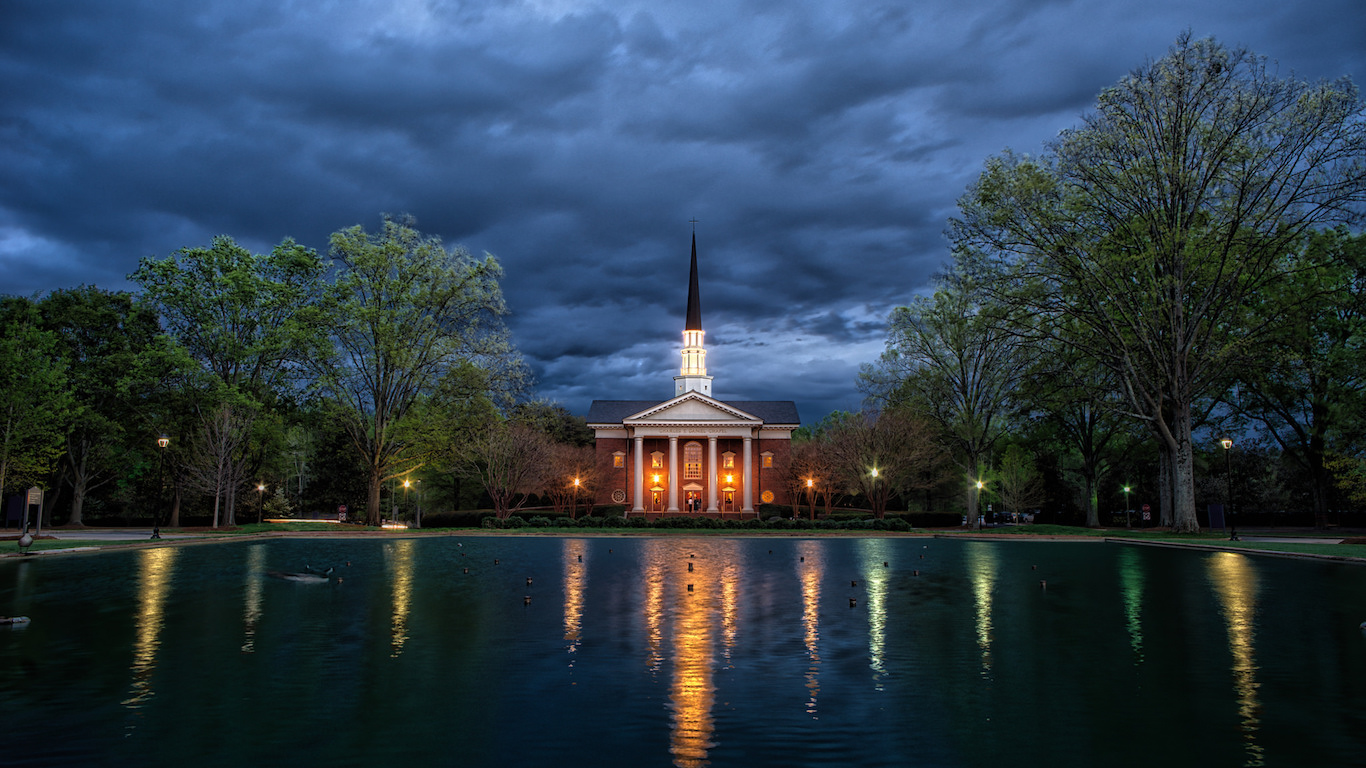
40. South Carolina
> Most expensive college: Furman University
> Annual net price: $31,050
> Statewide 4-yr public university tuition: $11,792
> Furman University admission rate: 67.8%
> Total state student aid spending per student: $1,491.02 (the highest)
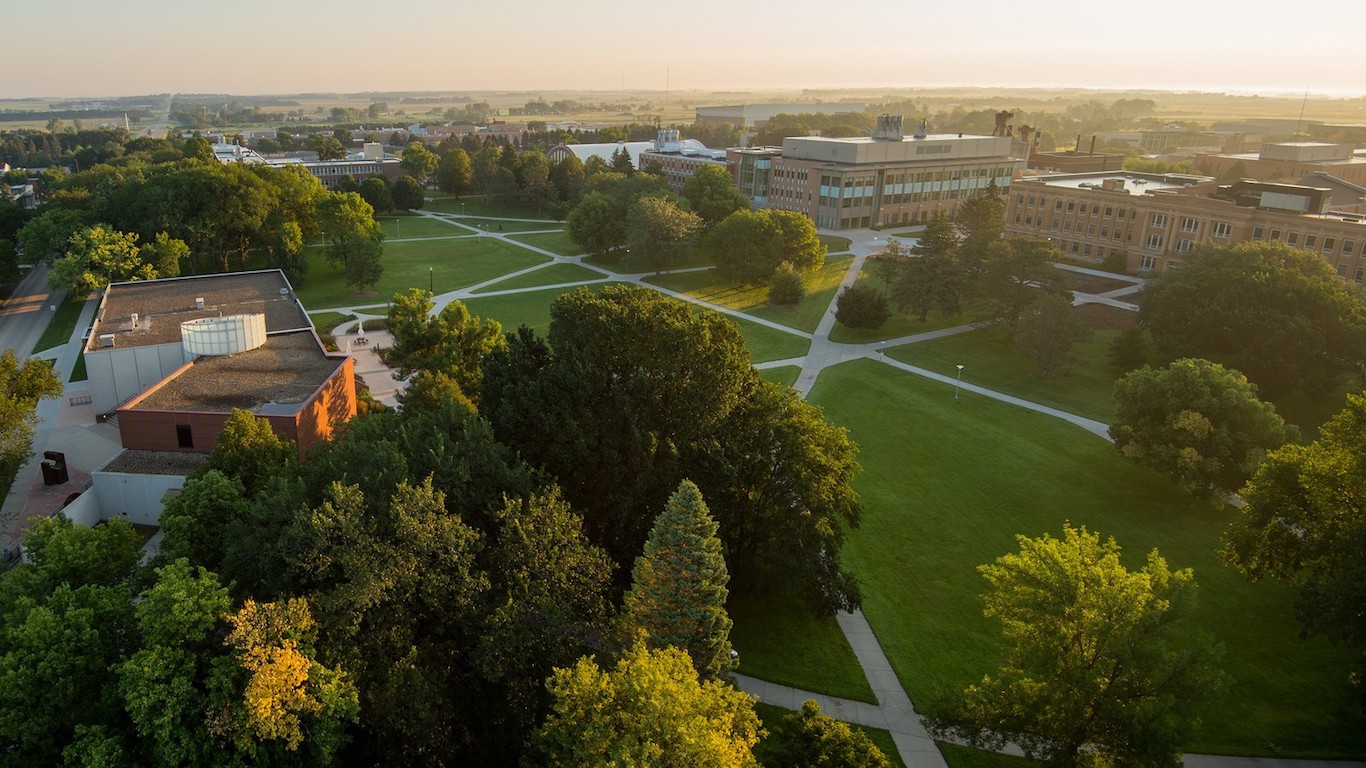
41. South Dakota
> Most expensive college: South Dakota State University
> Annual net price: $21,421
> Statewide 4-yr public university tuition: $8,258
> South Dakota State University admission rate: 90.8%
> Total state student aid spending per student: $101.44 (7th lowest)
[in-text-ad]
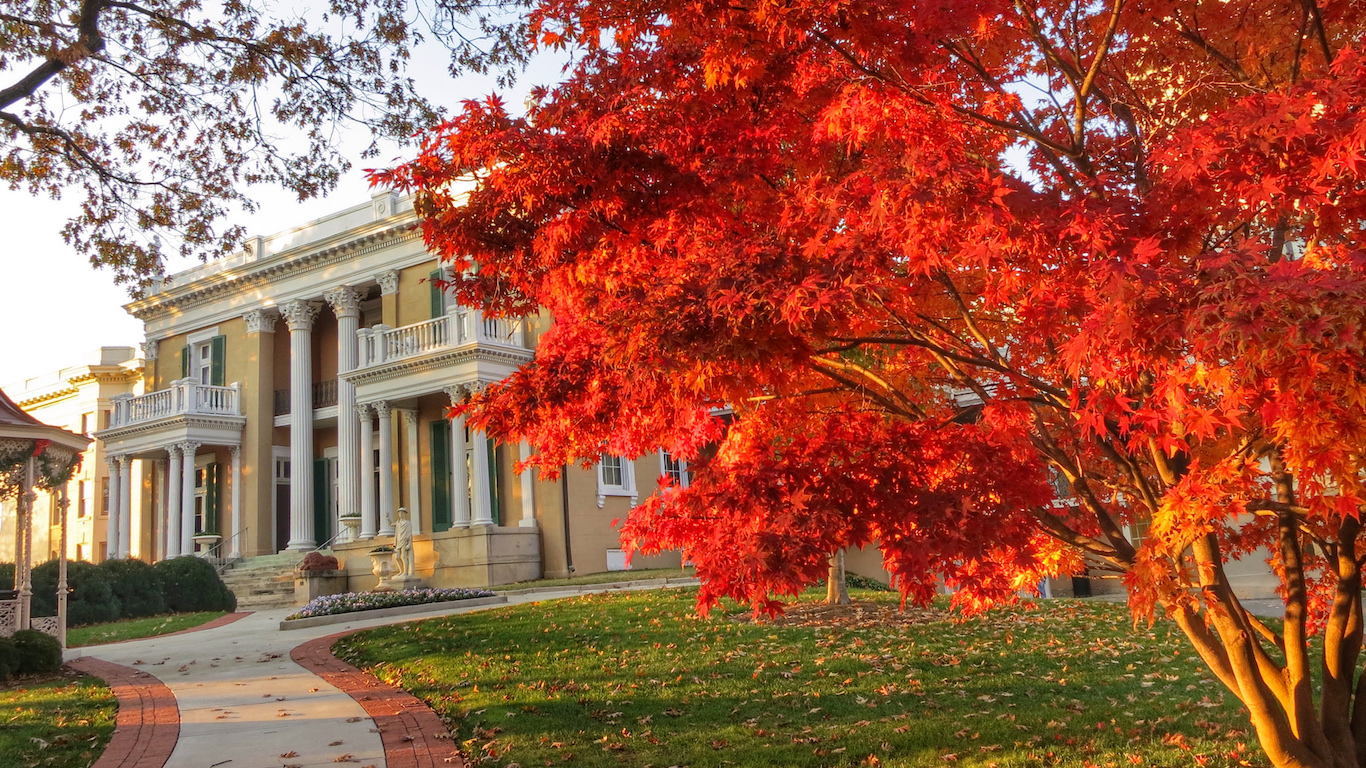
42. Tennessee
> Most expensive college: Belmont University
> Annual net price: $34,678
> Statewide 4-yr public university tuition: $8,925
> Belmont University admission rate: 81.0%
> Total state student aid spending per student: $1,138.29 (6th highest)
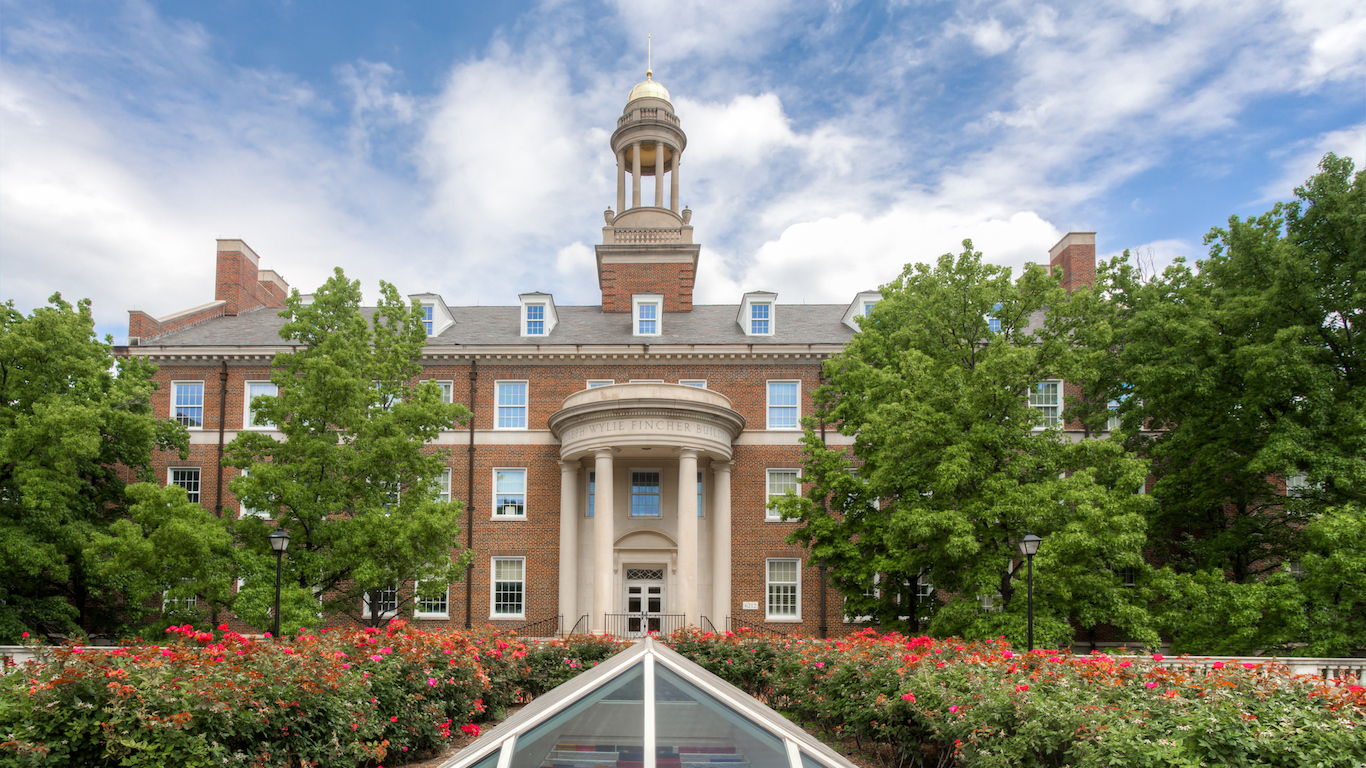
43. Texas
> Most expensive college: Southern Methodist University
> Annual net price: $37,499
> Statewide 4-yr public university tuition: $7,997
> Southern Methodist University admission rate: 48.9%
> Total state student aid spending per student: $651.09 (20th highest)

44. Utah
> Most expensive college: Nightingale College
> Annual net price: $34,415
> Statewide 4-yr public university tuition: $6,159
> Nightingale College admission rate: Open admission policy
> Total state student aid spending per student: $401.05 (20th lowest)
[in-text-ad-2]

45. Vermont
> Most expensive college: Landmark College
> Annual net price: $43,674
> Statewide 4-yr public university tuition: $15,057
> Landmark College admission rate: 36.2%
> Total state student aid spending per student: $466.08 (25th lowest)
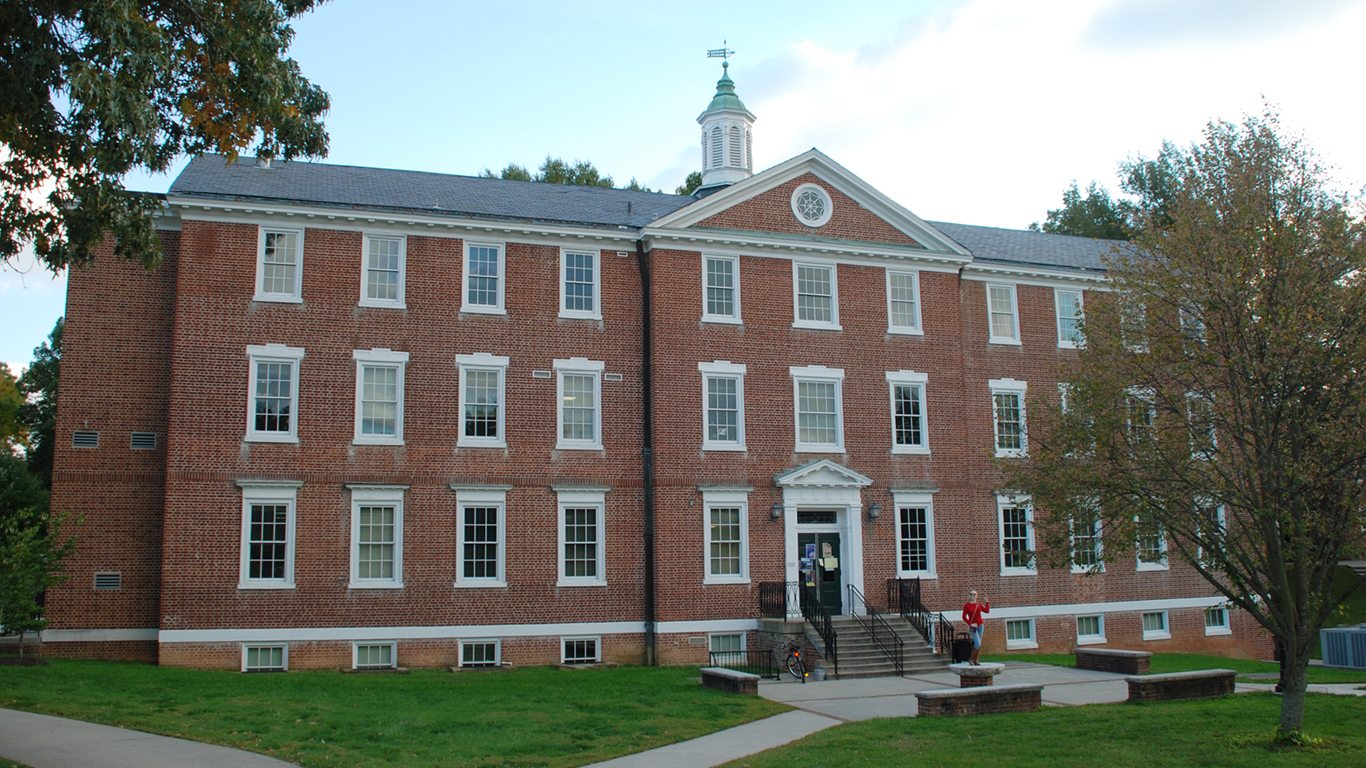
46. Virginia
> Most expensive college: Hampden-Sydney College
> Annual net price: $33,210
> Statewide 4-yr public university tuition: $11,643
> Hampden-Sydney College admission rate: 55.6%
> Total state student aid spending per student: $1,144.09 (5th highest)
[in-text-ad]
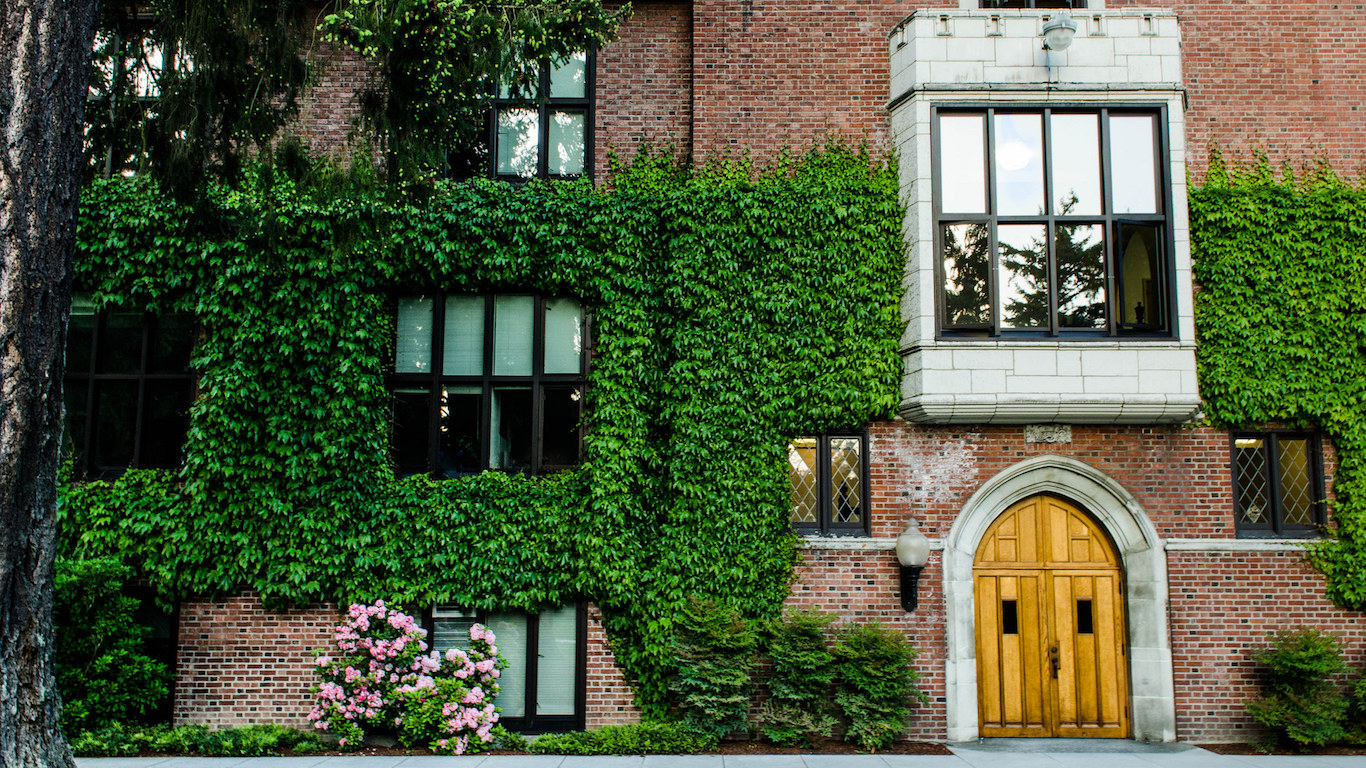
47. Washington
> Most expensive college: University of Puget Sound
> Annual net price: $40,416
> Statewide 4-yr public university tuition: $7,594
> University of Puget Sound admission rate: 78.9%
> Total state student aid spending per student: $1,049.41 (9th highest)
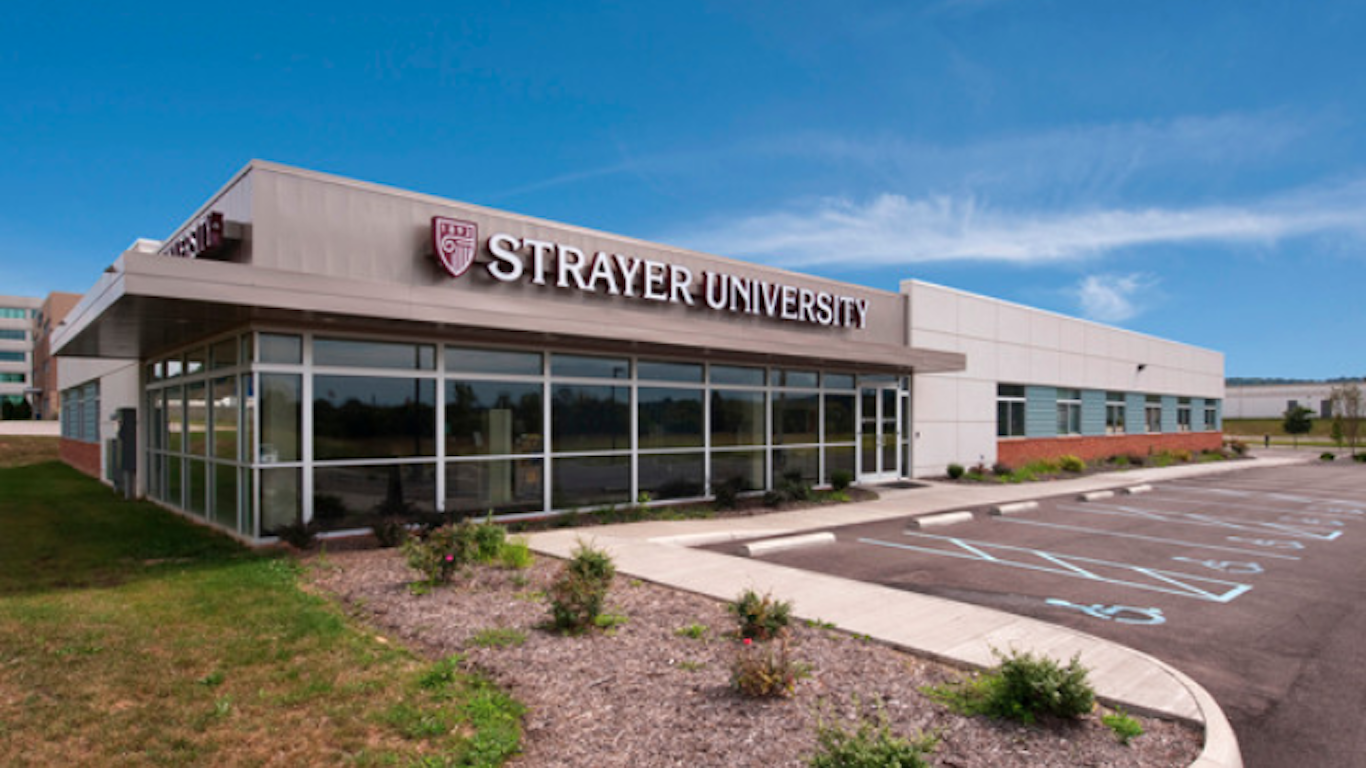
48. West Virginia
> Most expensive college: Strayer University-West Virginia
> Annual net price: $28,502
> Statewide 4-yr public university tuition: $6,914
> Strayer University-West Virginia admission rate: Open admission policy
> Total state student aid spending per student: $962.05 (10th highest)

49. Wisconsin
> Most expensive college: Marquette University
> Annual net price: $33,502
> Statewide 4-yr public university tuition: $8,502
> Marquette University admission rate: 84.3%
> Total state student aid spending per student: $393.31 (19th lowest)
[in-text-ad-2]
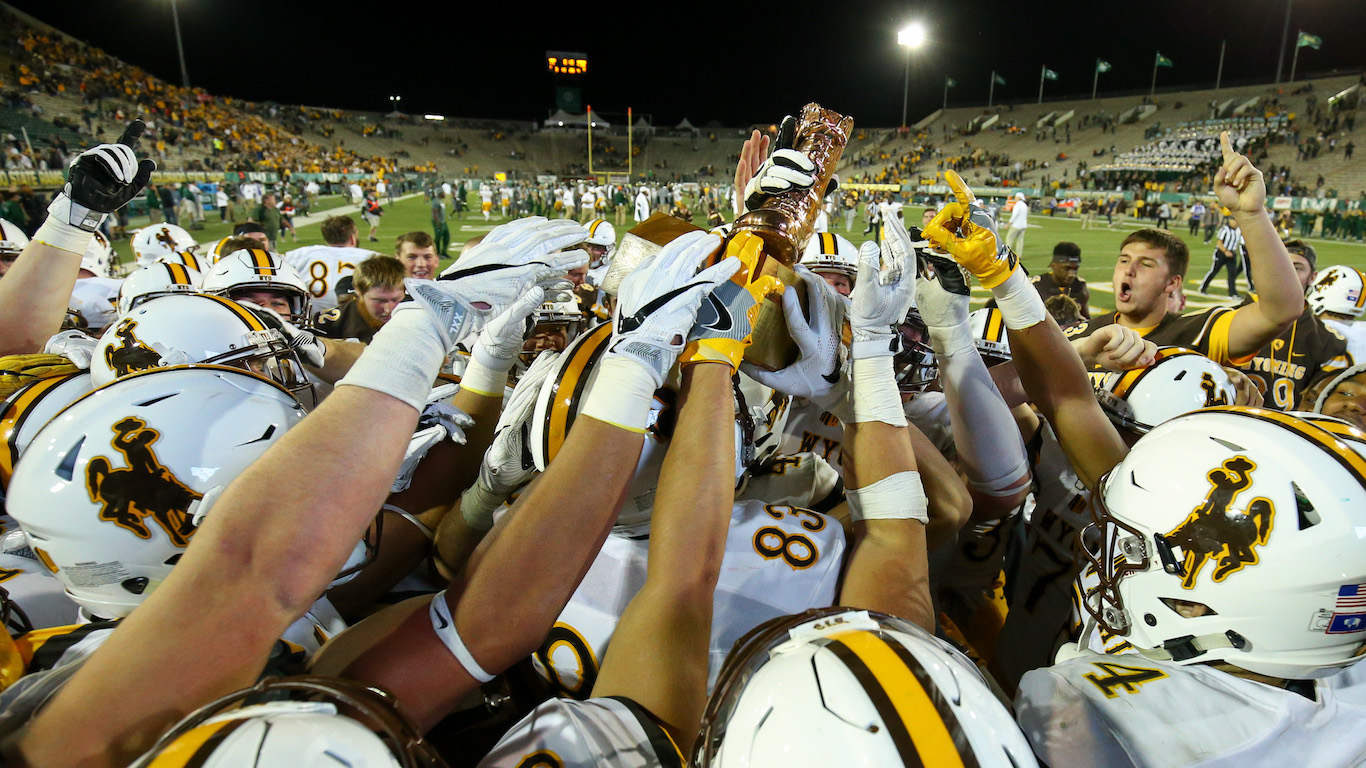
50. Wyoming
> Most expensive college: University of Wyoming
> Annual net price: $13,155
> Statewide 4-yr public university tuition: $4,178
> University of Wyoming admission rate: 95%
> Total state student aid spending per student: $442.78 (23rd lowest)
Because the University of Wyoming is the only institution in the state that met our criteria for consideration, it is the most expensive college by default.
Detailed Findings & Methodology
Academia was once an exclusive realm reserved for the wealthiest members of society, and while this is still somewhat the case, it has become far more accessible. The percentage of students from low-income families pursuing college continues to rise, a trend that actually helps understand rising college costs.
“We want more people to go to college, and we already have near saturation [among Americans in the wealthier income levels],” Reeves said. So the question becomes, “as we increase access to lower income people, how do we pay for that?” Institutional grants and other tuition discounts help level the playing field. Because these resources are largely taken from tuition paid by other students, the total cost of college rises as access to higher education expands.
According to the U.S. Department of Education, the average out-of-pocket net cost of going to college was $11,800 at public four-year institutions and $15,000 at for-profit institutions. Work-study programs, loans, and grants helped lower the out-of-pocket net tuition price to $8,500 for students coming from families in the lowest 25% of incomes. For students from families in the highest 25% of incomes, the out-of-pocket net price was approximately $19,700. While out-of-pocket expenses are higher at each income level, it is important to note that accrued interest from loans will increase the long-term cost to students who rely on loans to finance their education.
States have taken steps to lower the cost burden of lower-income students as well as curb rising costs overall. For instance, “some states have by policy lowered costs by shifting students to lower cost options,” Reeves said. He gave the example of Florida, where students who want to attend a four-year public university, must first obtain a 2-year degree, which is often awarded at less expensive community colleges.
To identify the most expensive colleges in each state, 24/7 Wall St. reviewed the net price of attending the 2015-2016 school year in a postsecondary institution from The Integrated Postsecondary Education Data System (IPEDS), a program for the National Center for Education Statistics (NCES). The schools reviewed were only four-year, degree-granting public or private for-profit and non-profit postsecondary institutions. Net price is tuition less any institutional funds such as grants supporting the student, and it represents the best estimate of what is paid by students. Net price data is based on payments by first-time, full-time degree-seeking students and is intended to reflect what traditional students, those who enroll immediately after high school, pay for college in their first year. IPEDS consists of 12 surveys, which collect data directly from institutions that participate in federal aid programs.
Admission rates, number of applicants, tuition and fees were also obtained from IPEDS. Average tuition, professor salaries, and total spending on student aid programs in every state is for the 2014-2015 school year and came from The Chronicle of Higher Education. All other state data came from the State Higher Education Executive Officers association (SHEEO).
Get Ready To Retire (Sponsored)
Start by taking a quick retirement quiz from SmartAsset that will match you with up to 3 financial advisors that serve your area and beyond in 5 minutes, or less.
Each advisor has been vetted by SmartAsset and is held to a fiduciary standard to act in your best interests.
Here’s how it works:
1. Answer SmartAsset advisor match quiz
2. Review your pre-screened matches at your leisure. Check out the advisors’ profiles.
3. Speak with advisors at no cost to you. Have an introductory call on the phone or introduction in person and choose whom to work with in the future
Have questions about retirement or personal finance? Email us at [email protected]!
By emailing your questions to 24/7 Wall St., you agree to have them published anonymously on a673b.bigscoots-temp.com.
By submitting your story, you understand and agree that we may use your story, or versions of it, in all media and platforms, including via third parties.
Thank you for reading! Have some feedback for us?
Contact the 24/7 Wall St. editorial team.
 24/7 Wall St.
24/7 Wall St. 24/7 Wall St.
24/7 Wall St. 24/7 Wall St.
24/7 Wall St. 24/7 Wall St.
24/7 Wall St. 24/7 Wall St.
24/7 Wall St. 24/7 Wall St.
24/7 Wall St.


